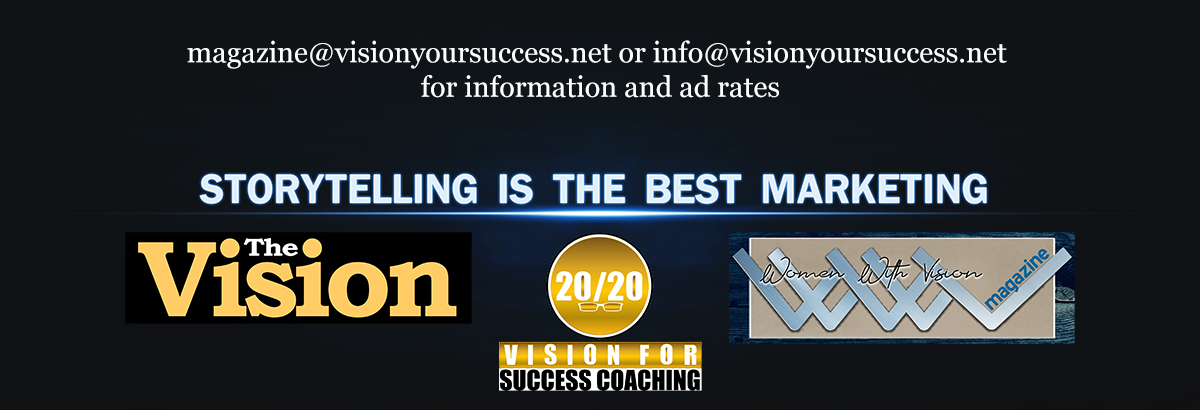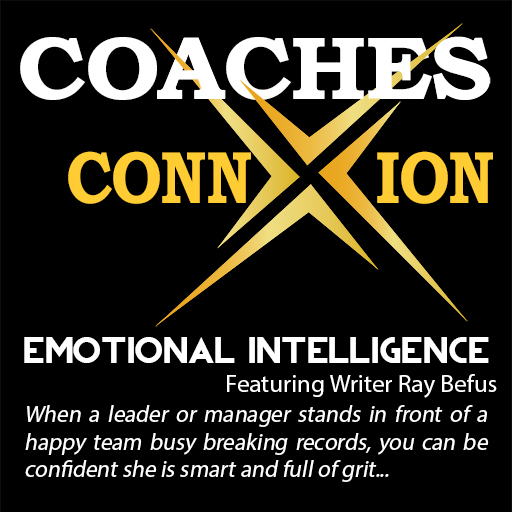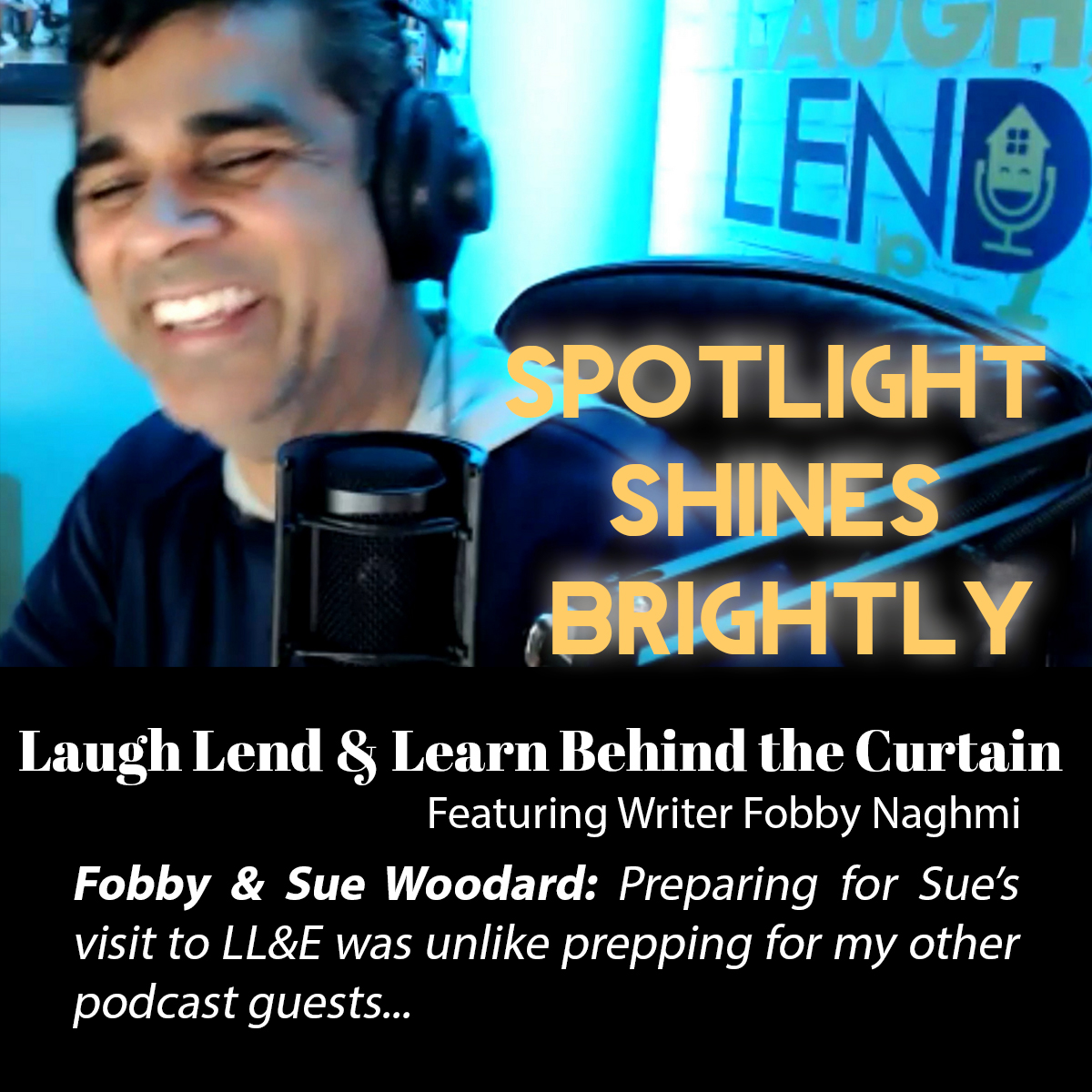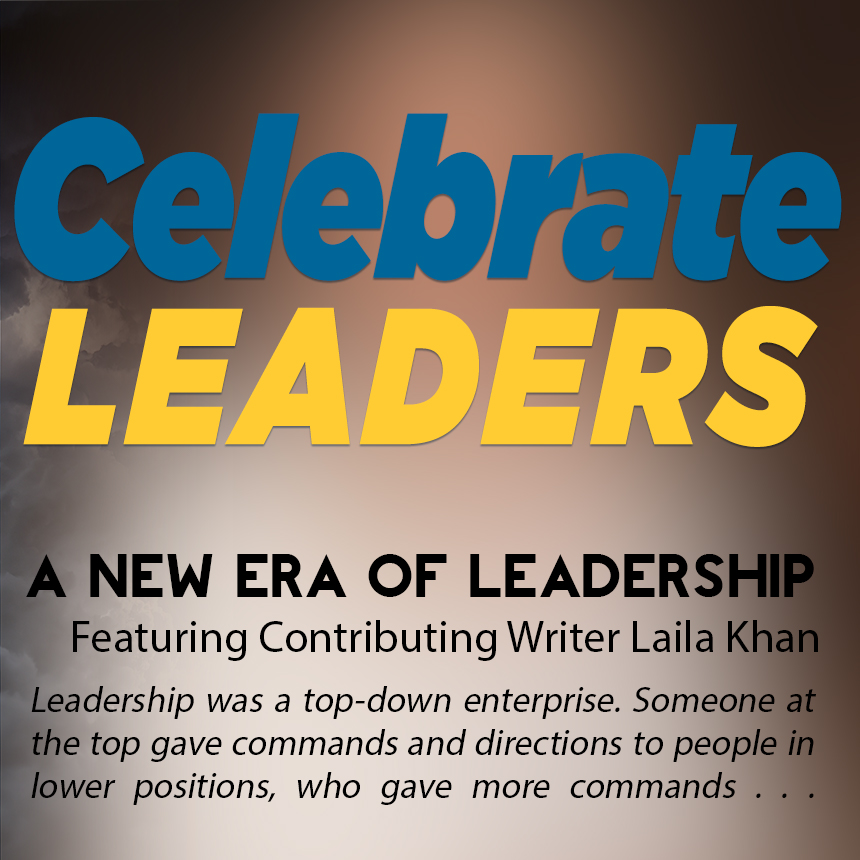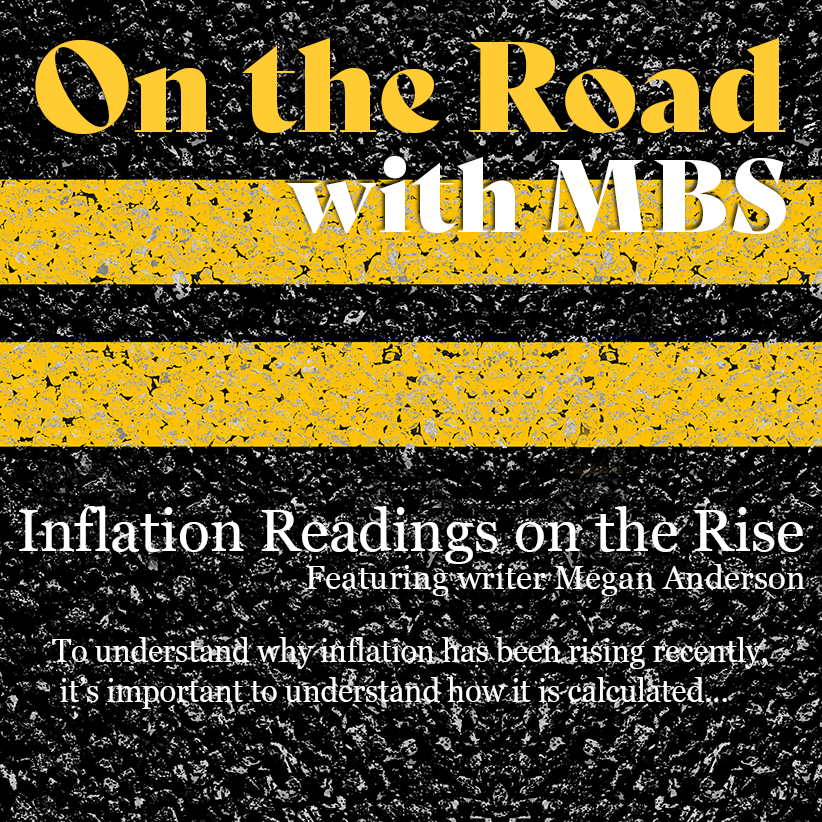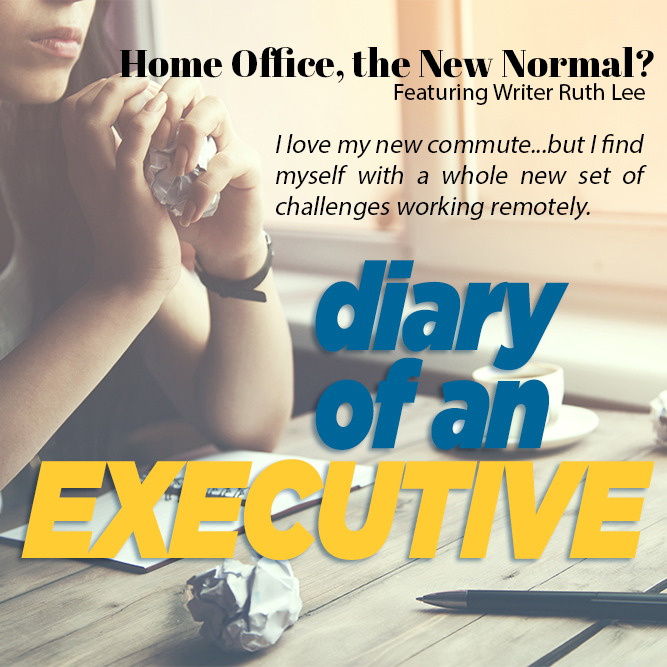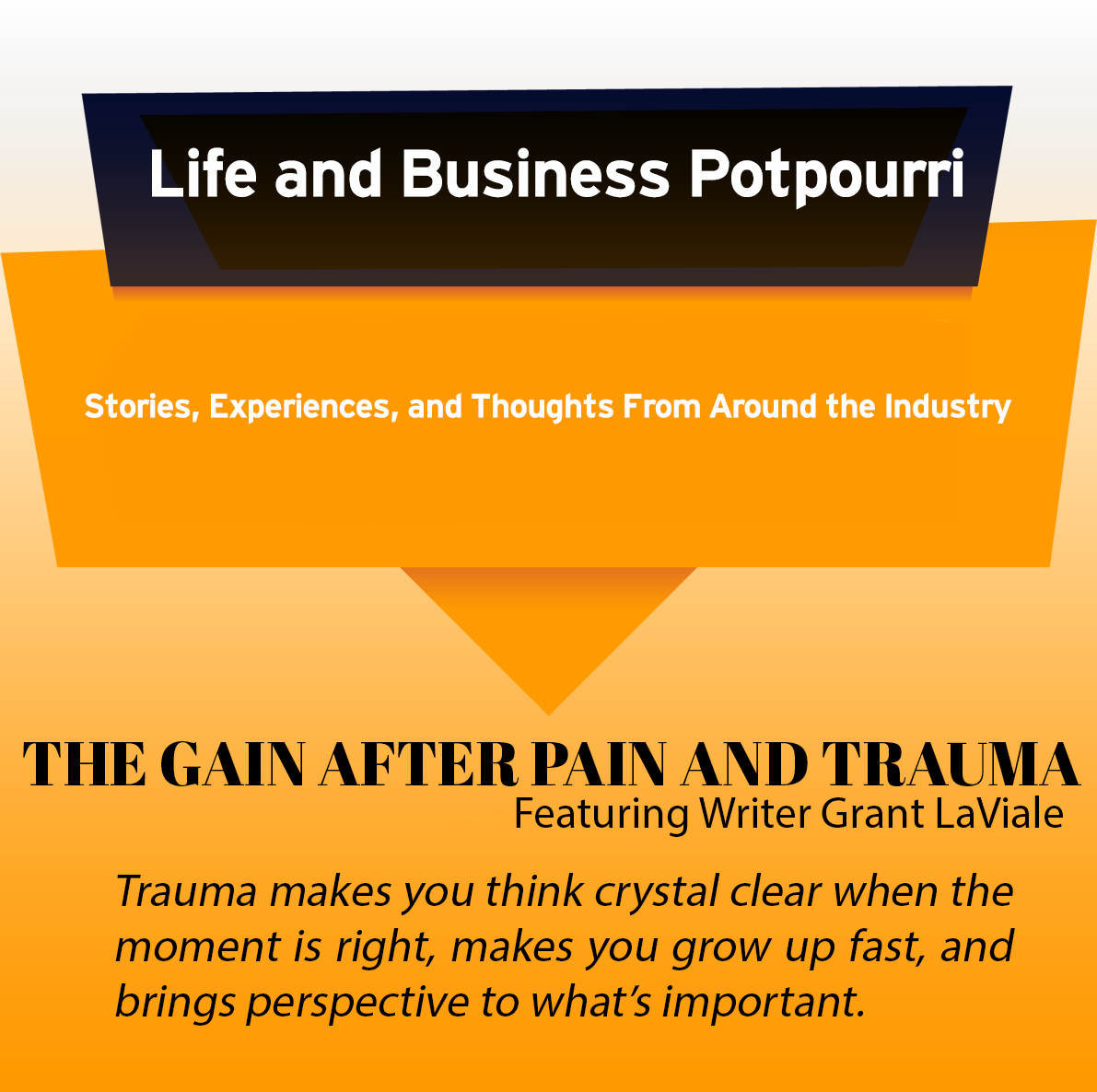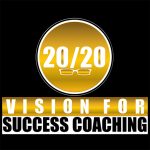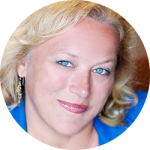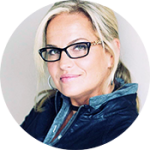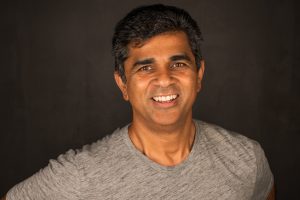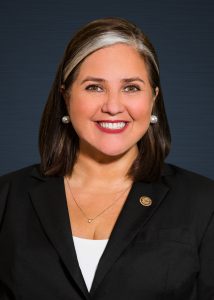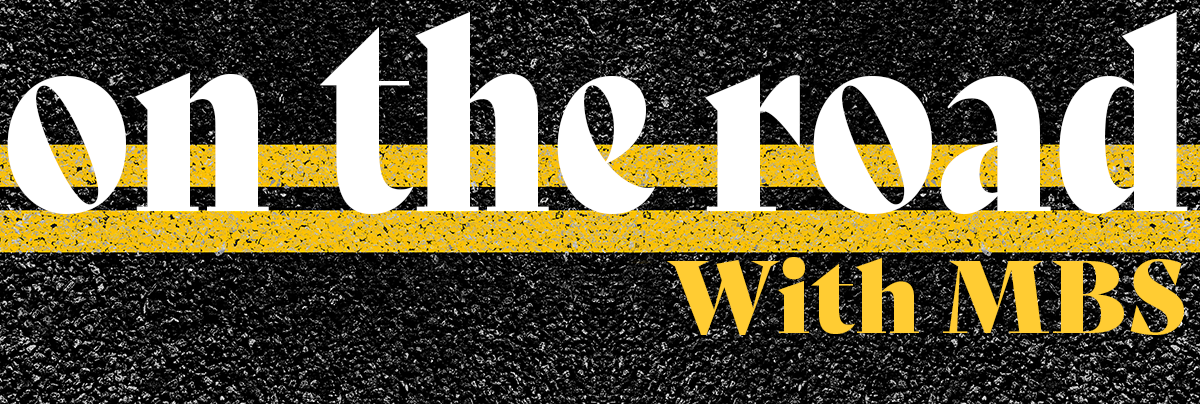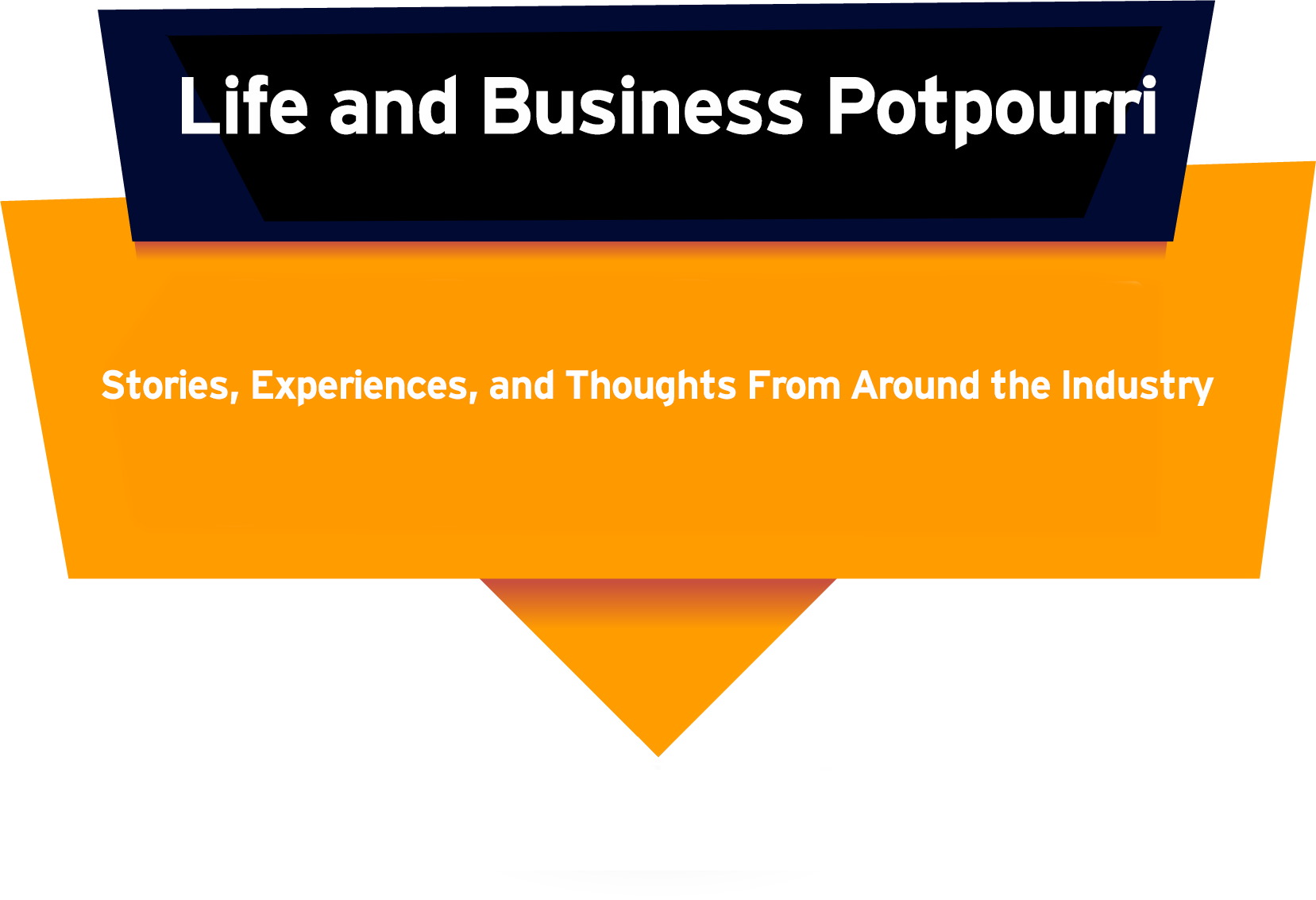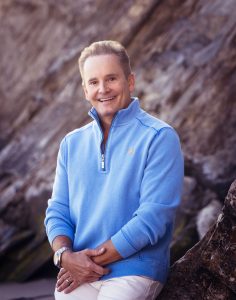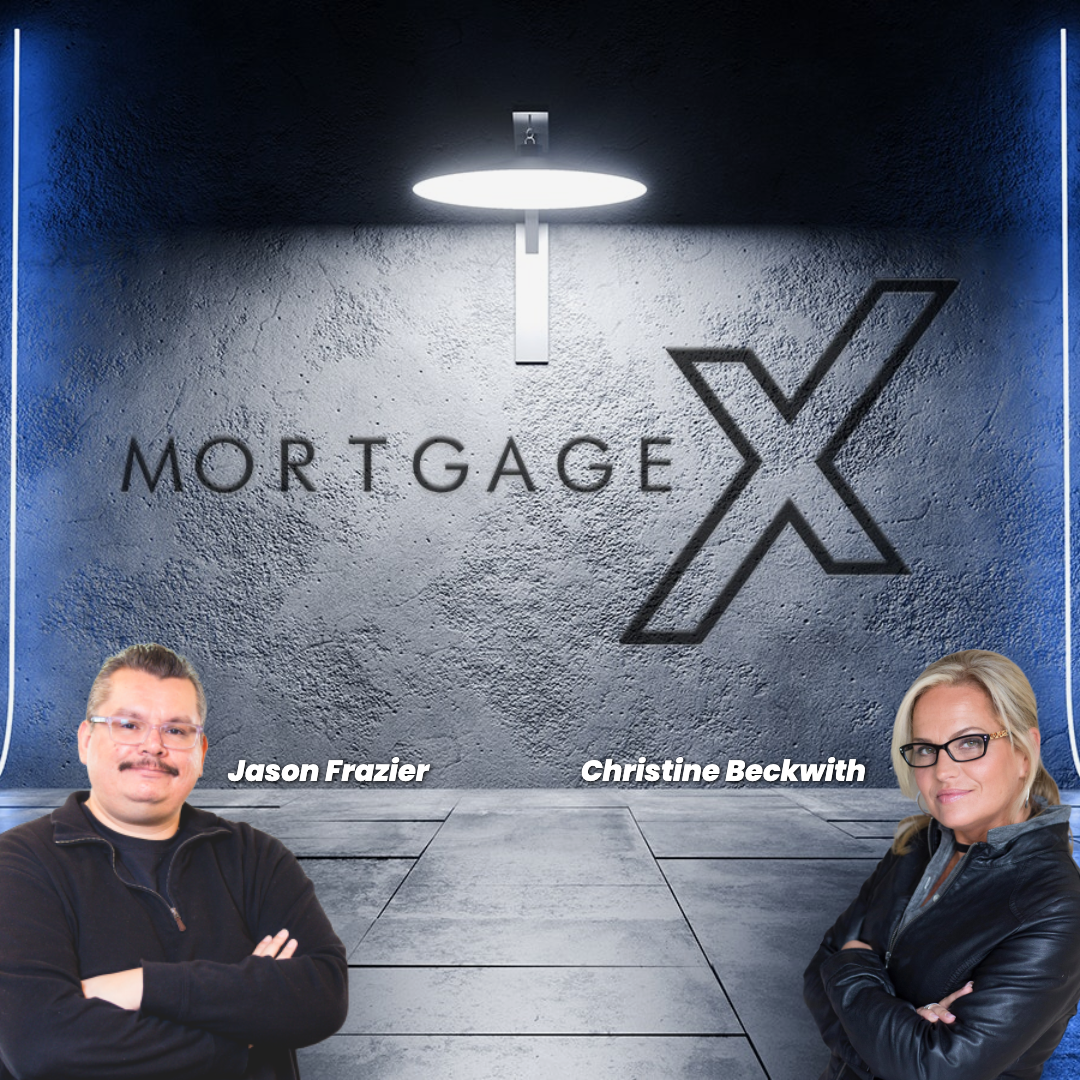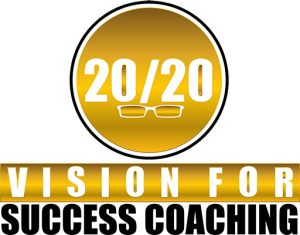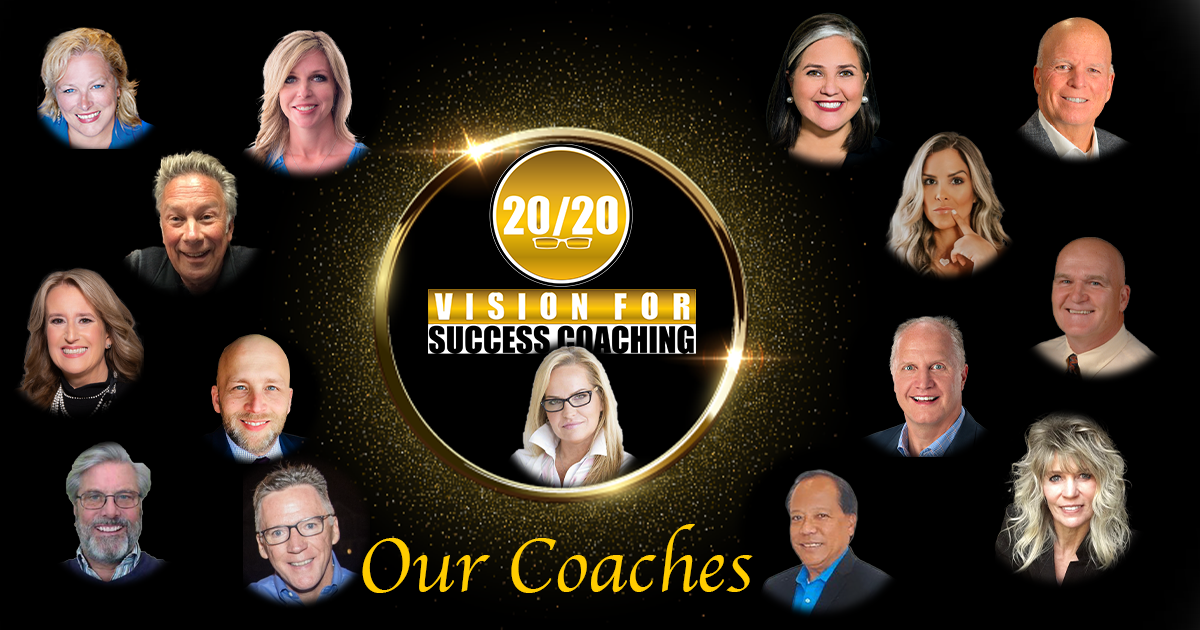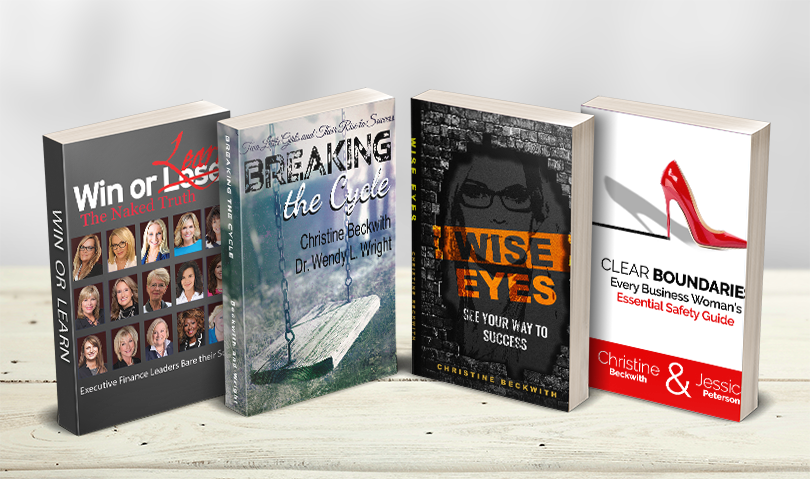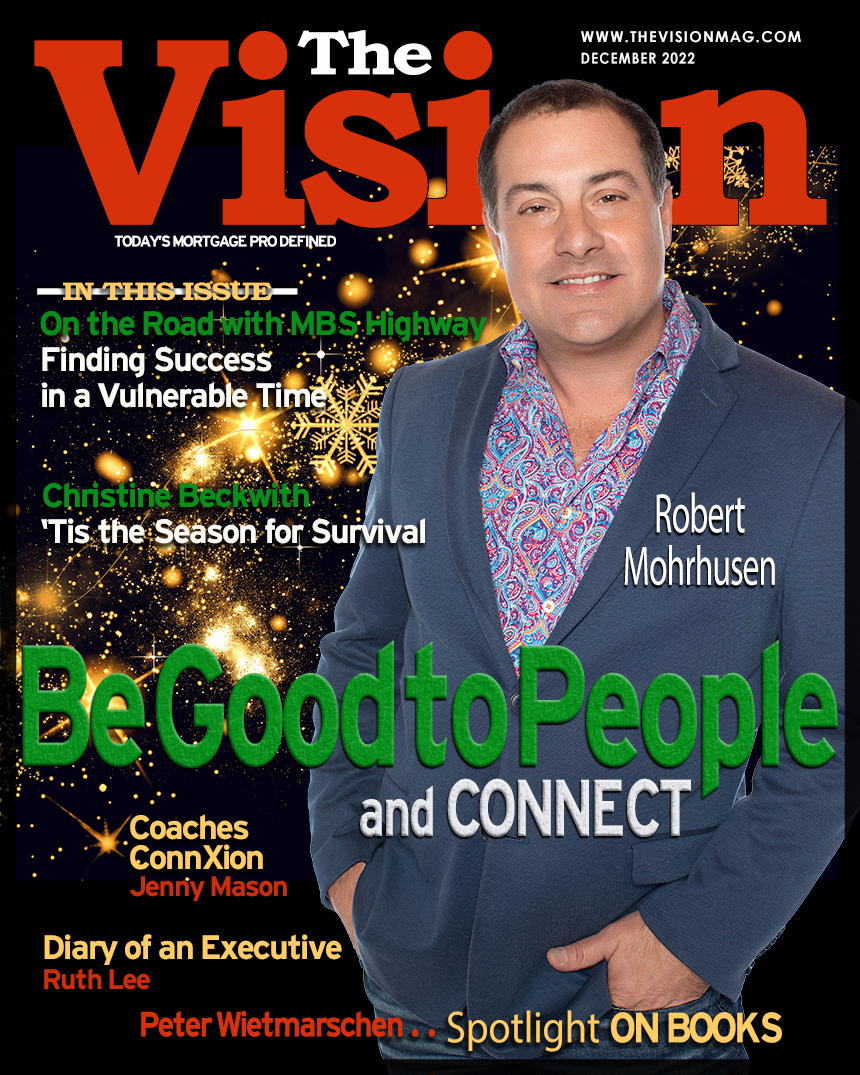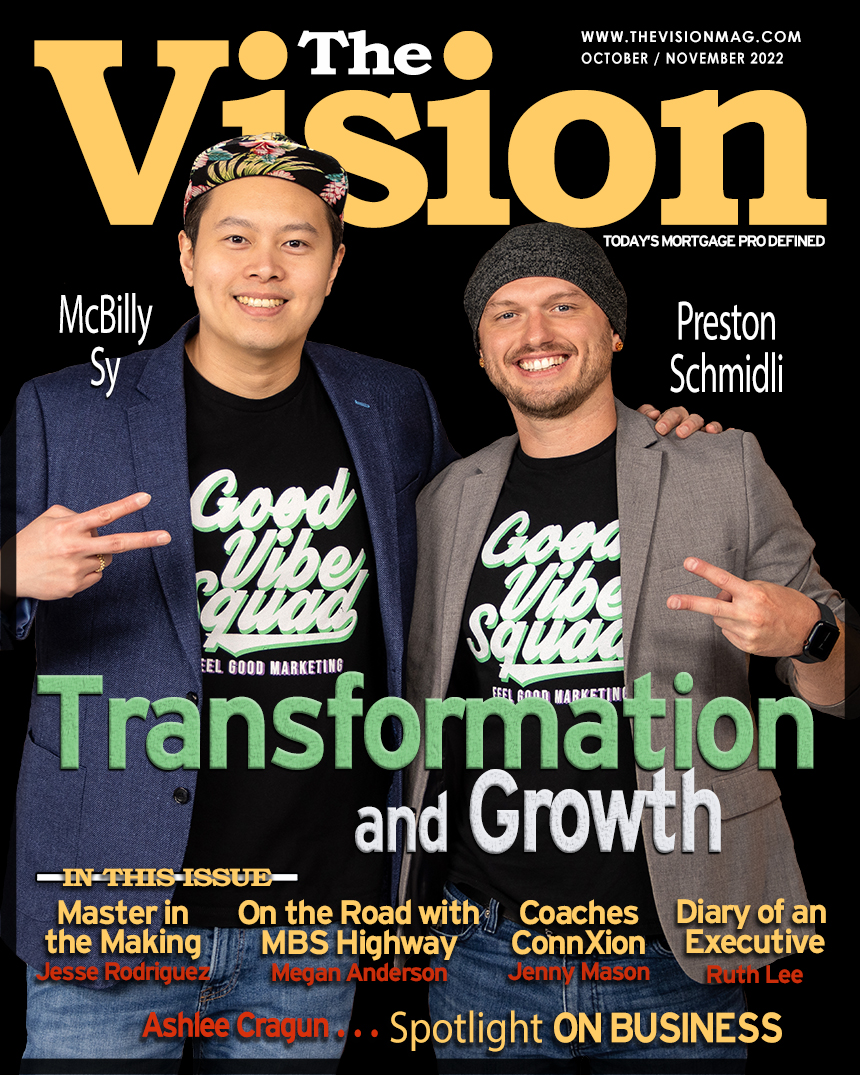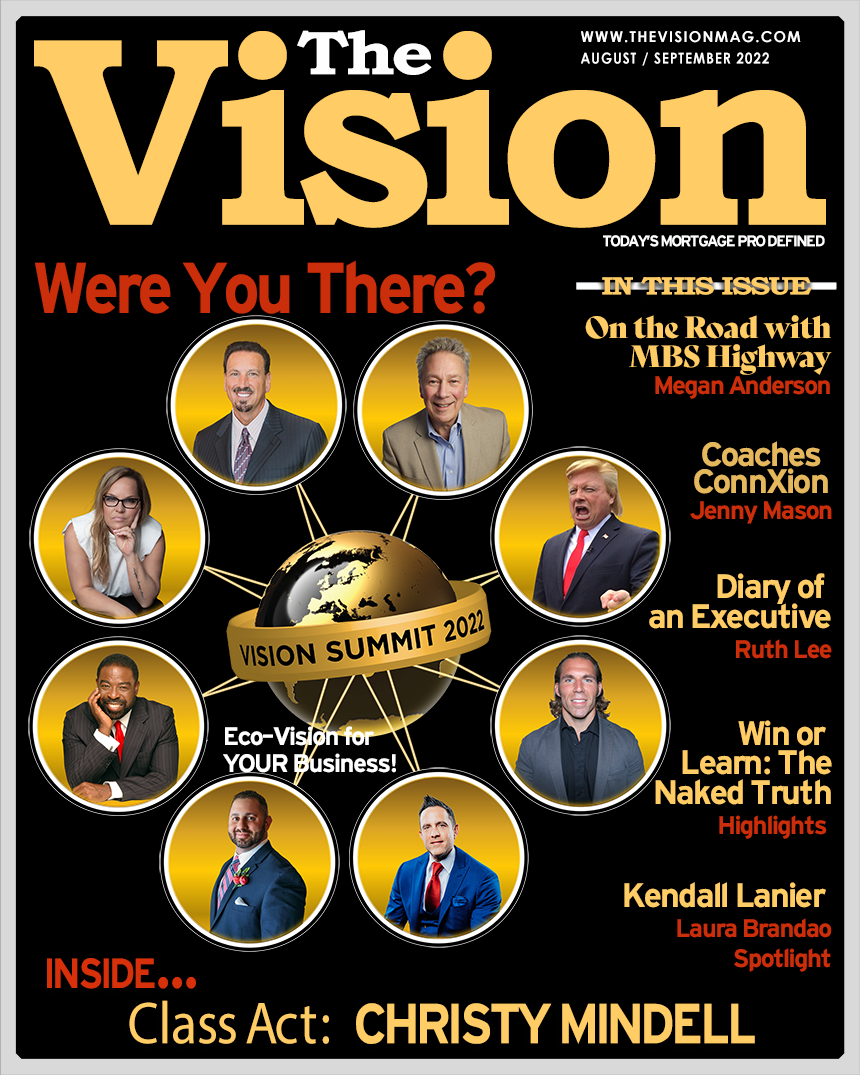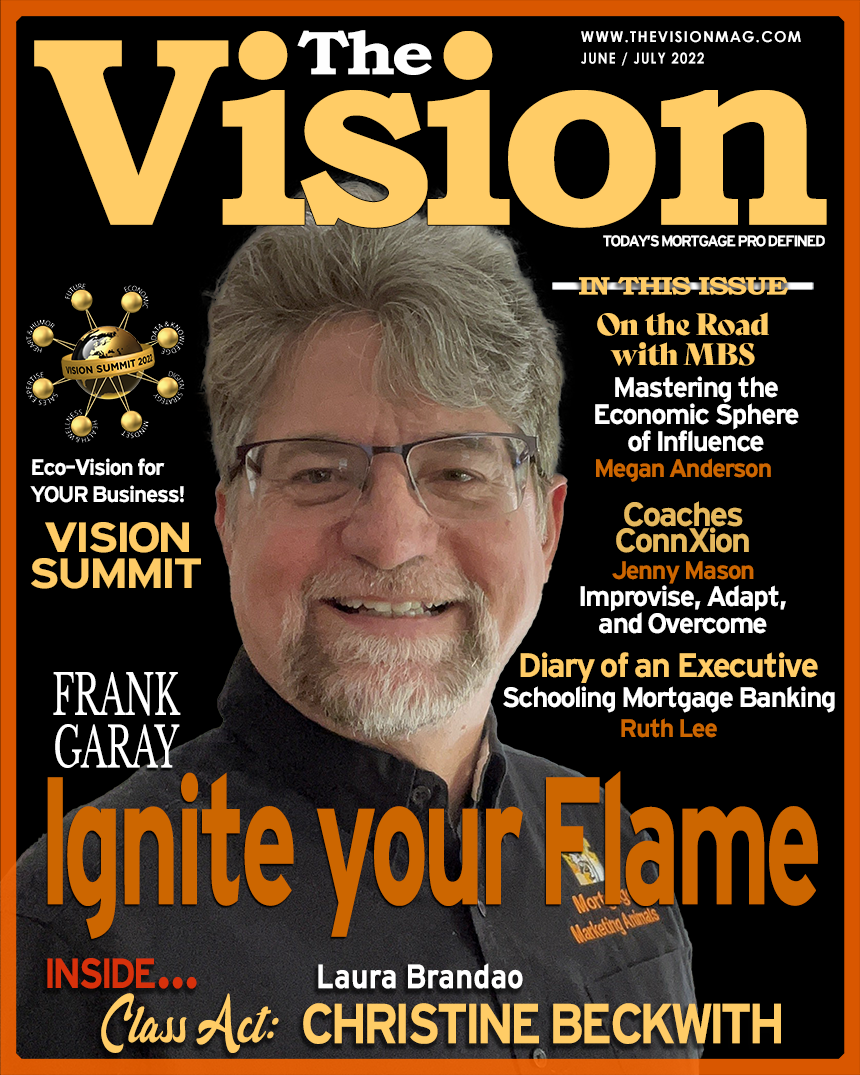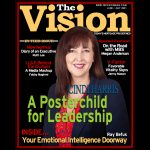
A POSTERCHILD FOR LEADERSHIP: CINDI HARRIS
“As a woman this is not always a popular thing to say but I do not ever want to be in a role because I am a woman—I want to be there because I earned it, because I achieved it, and I am the best person for it.” ~ Cindi Harris
I
n this edition of The Vision we are bringing you an amazing Women With Vision Award winner on our cover and introduce two new feature. One from MBS Highway will showcase industry trends and provide education in the important processes that are part of doing business in today’s regulated world. A media mashup takes you behind the curtain to reveal the secrets of the podcast wizard. And of course our regular features continue bring diverse topics and writers to these digital pages. We hope you find each of the features and stories presented here worthy of reading and sharing.
As always, a big Thank You goes out to all who have subscribed to both magazines. I hope you enjoy today’s issue and will share www.TheVisionMag.com in social media. Reach out and congratulate your peers whose bylines and profiles appear in these pages. Tag us in your posts #thevisionmag and #2020visionforsuccesscoaching. We love the feedback!
magazine@visionyoursuccess.net

I am excited for our readers to dive into this edition! The timeliness of my editorial team is impeccable as always in celebrating an incredible leader as the Cover Story on Cindy Harris. As we head to Tampa Florida the week of June 7th, we will be celebrating our Annual Women With Vision Award Winners (delayed) from 2020 Pandemic hold out, and Cindy is one of those incredible winners. I love what The Vision magazine has done to highlight and shed a large spotlight on industry leaders. We are thrilled to bring that power here and more over to bring the entire industry a quality publication. In a world wrought with stress and anxiety, with hardships and long days, the mortgage industry continues to thrive and pivot and adapt as it always has but the real heroes remain to be those leaders who can stand out and evolve and lead through it all.
20/20 Vision for Success Coaching has been able to attract some of the best-in-class industry leaders, and we are so proud to continue to support them as they truly are the ones making the difference. We will continue to celebrate their bravery and their grit, their tenacity and perseverance. We need these leaders now more than ever. Enjoy and please do let us know if you want to be part of this growing magazine. As my company continues to tell its own story of growth and development I could not be more warmed by the outpouring of support, so thank you in advance for considering us for a future publication.
info@visionyoursuccess.net
WRITE FOR US
Yes, we do accept submissions. If you are a writer interested in being featured in a national publication, we will be happy to consider your ideas and your article submissions. We are also interested in recurring columns centered around our featured topics. The place to start is by clicking the button and inquiring.
20/20 Vision for Success Coaching
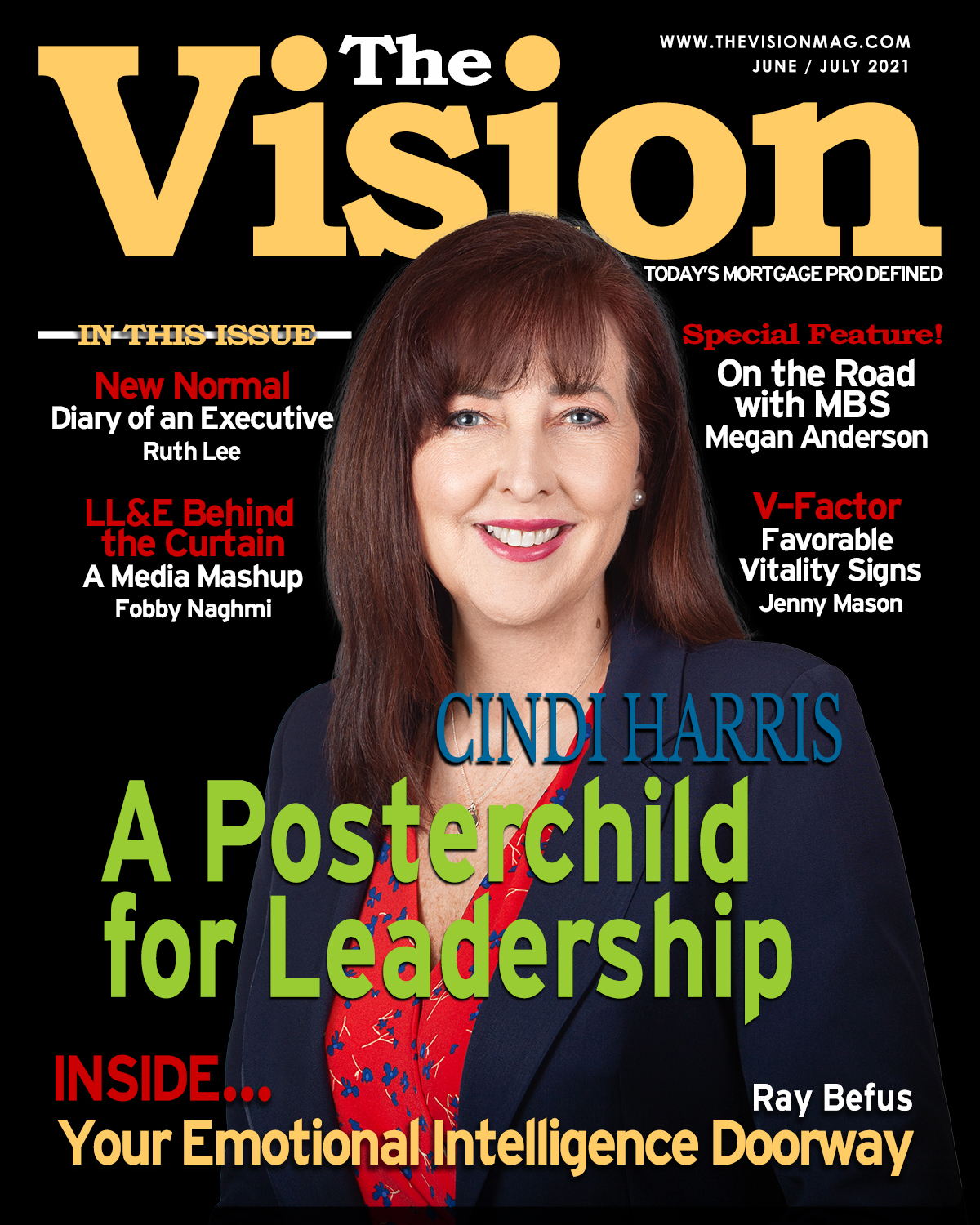

A POSTERCHILD FOR LEADERSHIP: CINDI HARRIS
Written by: CaZ (Candy Zulkosky)
The road we travel in life, when looked upon after a 30-plus year journey, is often a surprise to us, many times far from what we thought we wanted when we made plans and goals as a young adult. This is true for Cindi Harris in the best possible way. She wanted to be a lawyer and life eventually showed her how the different path she took, one she embraces with grace, passion, and zeal, was in truth a more rewarding and satisfying route.
Today, as Chief Operating Officer of Class Valuation, Cindi has risen far above and beyond her early role as an administrative assistant to the regional appraisal manager at Bank of America. Having performed thousands of appraisals, co-founded a national AMC, and taken on multiple positions in between, Cindi’s versatility and ambition continue to shine through as she leads her team.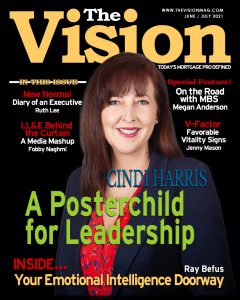
Cindi became an appraiser in the early 90s in large part because it felt like she could be a protector for consumers and lenders as they were making big and important decisions. Her task, one she proved to be good at, was to provide a strong and accurate analysis and promote public trust.
Today, the mortgage world looks much different from when she began working in the field. However, her goals remain at heart the same. Recent challenges, such as a static supply of appraisers and an elastic demand for appraisals, have caused residential real estate valuation to be difficult over the last decade. The mortgage market has been crazy. It is clear there are not enough appraisers to keep up and provide the speed the market participants are demanding. At Class Valuation, Cindi is playing an integral role in improving the landscape of valuation, and in continuing to provide best in class service while innovating and providing real solutions in the mortgage industry.
Cindi sees two ways Class is improving the valuation space: through technology by leveraging 3D scanning technology and bringing new appraisers into the business by creating a lucrative model for trainee appraisers to enter the field successfully.
“Find mentors and never stop learning.” ~ Cindi Harris
When The Vision sat with Cindi, we asked what she considers her greatest success. Her answer reveals much about Cindi’s leadership and how she views her role in life and business.
“I am proud to have three grown college-educated children who are productive, good-hearted people.”
As we probed for a deeper response, she continued saying, “I think my greatest business success is happening now in this role at Class. I’ve gone through a lot of personal growth. When I mentor others, I’m now in a place where I’m comfortable with what I know, and know that while I have much to share, I also still have much to learn.
When we’re 30 years old, we think we know everything. When we’re 40, we think we know everything. Suddenly we’re 50 and WHOA! Now we actually do know a little bit. It’s like that for me. I thought I knew everything before, and now I understand the value of those times of progression, how vital learning is to our ultimate success. The lesson is in realizing this sooner than later. The maturation comes when we’re really ready.”
Mentoring is a practice Cindi understands from both sides. Helping hands have been available to her along the way and she is committed to extending the same boost up to others.
“My first mentor appeared back when I didn’t know I wanted to be an appraiser. The regional appraisal manager I worked for, Larry, said, you know I think you would make a really good appraiser. The senior appraiser I worked with day in and day out agreed and they both encouraged me to enter a nine-month appraiser trainee program the bank had just spun up. I keep in contact with both of them. The senior appraiser: he’s a chief appraiser now, calls me his protege. When I earned my license, Larry gifted me a clipboard. What made it special, aside from its beauty as a handcrafted tool, was that he had used the same clipboard for his entire career in the field as an appraiser. I did every appraisal in the field with that.”
Mentoring is clearly one area where Cindi’s heart shows through as a leader. Her husband of 20 years, Rob, is also an appraiser. Together, they’ve raised three children to adulthood. Cindi treasures the mentoring aspect of being a mother and an executive.
“Back in 2016 I earned a credential in organizational leadership and realized mentoring and coaching and helping people through the experiences I went through the hard way is a role I value for myself. I enjoy helping bring people my earlier experience in a different lens, one they can apply to make changes earlier in their career than I did in mine.
My daughter’s 27 and I spend a lot of time mentoring her. Now that she’s not a teenager, she actually listens. It works pretty well because I can tell her I’ve done this already it’s not a pretty outcome just trust me try this. Many times, she will, and she has had success in following my lead.
People leadership is important to me. When people find new insights or have an Aha moment, or they put in the work to achieve a goal; or they say to me You told me to read this book and can we talk about it, these moments are the greatest gifts. It is an honor to be a mentor, to work with someone eager to learn and who wants to learn from you. I think this is especially true in this age when so many millennials are in the workforce. They are looking for different results than I did, they take an original track, and it’s rewarding to both of us when the mentoring relationship works.”
“Do not give up especially when it’s hard.” Cindi Harris.
Colin Powell might seem an odd role model for a c-suite executive to take on, especially a woman in leadership. However, when Cindi speaks about her admiration for the retired general and American hero, it is apparent it is his grit and determination that draws her to his story. From his beginnings coming from a family of immigrants migrating to the US, Powell worked hard to reach the rank of 4-star general. In this journey he epitomizes the word success in Cindi’s view.
“There are no secrets to success. It is the result of preparation, hard work, and learning from failure.” — Colin Powell
“One of my greatest lessons was when I learned individuals do not make successful organizations, but teams do. Cliché but true – there is no I in team. Saying we, us, and our speaks to collaboration and a culture of winning together.
One of my biggest failures years ago was not removing a toxic person from the work environment out of fear and lack of discernment over the impact caused to the culture. Strong culture is imperative to the success of an organization. When leaders tolerate toxicity, it sends a message about the lack of discipline in protecting the culture at all costs.”
Failure is not a choice Cindi gracefully embraces. While she values those painful lessons, there have been far more successes in her life than not. Even in her personal life, where she enjoys hiking and walking, she took on the challenge to train for and run a marathon. And yet, she does not consider herself good at running nor does she especially enjoy running. Why, then, did she run three marathons?
“It’s a character-building thing. When you’re kind of a perfectionist and you always want to be good at what you do, but you really stink at something you also consider miserable on top of it, the failure needs to become an accomplishment. The third marathon, the one I really wanted kind of like a bucket list item, was the New York City marathon. Doing this was so far outside of my comfort zone it forced me to get comfortable with the fact I would not win this race, I would not even be in the top 75 percent in the race. I had to become comfortable with a goal of finishing in the bottom 25 percent. I was successful! I accomplished this based on my own skills, ability, and willpower.”
“Give 100% to the goals you believe in.” Cindi Harris
Cindi considers herself to be a people leader. She cares deeply about her team and wants to see individuals grow, develop, and see the potential in themselves. Is she tough and direct? Yes, because it helps people to know where they stand, how to be accountable, and continue to expect more from themselves. She believes one should always challenge the status quo. And her coworkers tend to agree:
“It is hard to understand where even to begin on Cindi’s leadership qualities. The list is endless. Cindi is a leader with her team and is a leader in every aspect of her life and in our industry. She is mindful of all stakeholders in all of her decisions. She cares deeply about her colleagues, staff, and profession. Not only is she the poster child for how all leaders should act professionally, but she is also a wonderful friend, mother, daughter, wife and with all other roles she plays in her life. I am grateful every day she is part of my life both personally and professionally.” ~Scot Rose, Class Valuation Innovation Officer
Cindi is a leader who inspires and helps. She is tough when necessary, as must be anyone who reaches her level of success. And yet, as a woman she brings the essence of being mom and this is the source of her version of tough love. She is unapologetically old school. She wants her teams to know they should always push themselves to provide the best service, and even more, be driving the future through innovation and creativity. Her goal as a leader is to inspire others to want more while understanding their part in a greater purpose.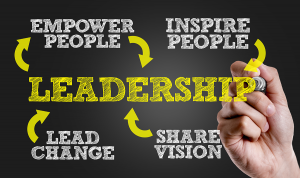
“For me, being a leader is getting people to want to achieve things. I want them to do it because that’s what they’re supposed to do, but more importantly, do it because they want to, because they believe in a bigger purpose. Every member of the team is a piece of the puzzle. And the puzzle isn’t really great until it’s put together in the big picture.”
Cindi believes most people ultimately want to see the big picture and succeed at their part of the accomplishment. She sees her role as painting the vision to inspire and when the team is collectively inspired, then the puzzle is whole and it’s great.
As a leader, it is important to Cindi to bring leaders up who will emulate her actions, who will inspire and help and learn the same processes she uses so successfully.
“It is important to evangelize within the organization about what the big picture is and what we stand for in our core values to make sure everyone is really aligned.
She offers this advice, “Seek approval first from yourself and be yourself. You are good enough. You have important things to offer the world. You do not have to prove anything, just keep working hard and learning. Be humble but brave. It is an exciting time and great things are happening. We have nothing but opportunity in front of us and that is awesome.”
“As a woman, this is not always a popular thing to say but I do not ever want to be in a role because I am a woman—I want to be there because I earned it, because I achieved it, and I am the best person for it.” ~ Cindi Harris
For Cindi, there’s a dichotomy in leadership and this difference is a strength she brings to the table. She brings the essence of being a mom, but not, perhaps, in the way one might think. Being a mom in leadership is not, according to Cindi, as much about nurturing as it is about giving tough love and holding people accountable to push themselves to bring the most out of themselves. This is not accomplished by sugarcoating or complementing everything. It’s accomplished by communicating in a candid and honest way.
“Radical Candor written by Kim Scott is one of my favorite books. I think leaders have to be honest with people and that’s not something a lot of people like to do.”
Cindi is a firm believer in communication as a key to leadership success. Understanding that men and women relate differently to styles of communication, it’s important to consider when dealing with people, where they are coming from in each situation. While it might be easier for her to relate to women, it’s important to always step beyond gender and take the time to clarify and read the right cues before acting.
“Communication is key, whether it’s a man or a woman you’re communicating with. I’m old school. I don’t believe everybody gets a trophy. I think everyone needs to work hard and earn their accolades with skin in the game. For example, my kids all graduated from college and of course we helped, but each of them paid large parts so that they understood what their education really meant and valued the worth enough to work extra hard to achieve it.”
It is surely appropriate to end this story featuring Cindi Harris on a story relating to her children, just as we began it. She is, ultimately, a mom who brings the best of the mothering experience into the boardroom to the benefit of the people and businesses she represents.
CaZ, the Writer Success Coach, wears many professional hats all earned through experience as a professional writer, editor, coach, marketer, educator, and entrepreneur. Aside from her nom de plume when writing, she’s known as Candy Zulkosky and is the editor in chief of this publication.
As the Writer Success Coach, CaZ specializes in supporting writers. She finds joy in helping others to write and experience the joys of being published. CaZ coaches writers whose skills and experience range from the novice to the multi-published author. She tailors the coaching experience to best fit the needs of each writer and business professional she works with.
On the publishing side, CaZ is a multi-book published author and has edited or assisted in bringing dozens of authors to both print and to the best seller lists!
CaZ is pronounced KayZee in case you were wondering.
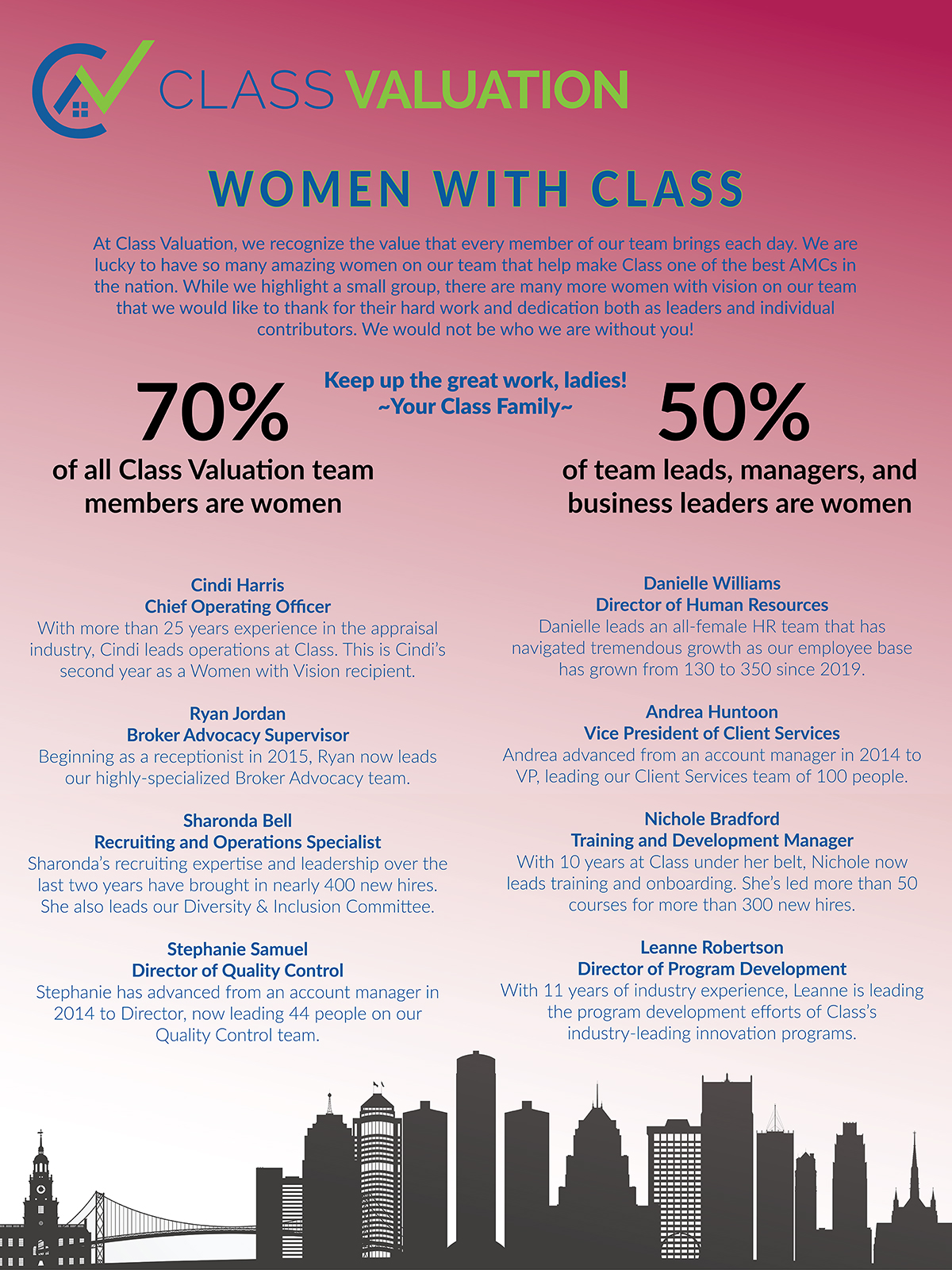
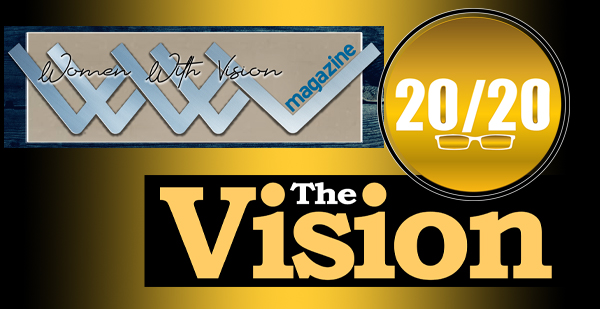
Be sure to subscribe to both magazines: The Vision and Women With Vision Magazine. Subscription is FREE and the only way to be sure you won’t miss a single issue of either magazine!
Written by: Fouad (Fobby) Naghmi, EVP
Preparing for Sue Woodard, chief customer officer of Total Expert, to appear on Laugh, Lend & Eat (LL&E) was unlike prepping for the other guests in the prior 18 episodes. Sue requested a list of questions I might ask her. On the surface it didn’t sound difficult, but unknown to Sue, most of the time I prepared for a show 24 hours prior to recording, or on some occasions, an hour before the show! Her request meant I needed to prepare well in advance for this episode.
Sue’s request allowed me to think about what questions I wanted to ask. The questions could cover a wide array of topics. Sue’s career has spanned almost three decades and is still going strong. She has been a loan processor and a loan officer. She worked with Barry Habib at Mortgage Market Guide back in its early days. She is a renowned speaker in the mortgage industry. I decided to narrow the focus.
For the past, several years, one of my concerns has been around the replacement of loan officers with computers that could originate mortgage loans for the consumer. Every year it seemed we took one step closer towards the fulfillment of the worst side of my concerns. Recently, I even heard a company in southern California had released a mortgage platform with no physical loan officer to assist the consumer. It’s important to note Total Expert, where Sue has been for the last few years, is a technology/software company, so to gain her perceptive on this topic would be extremely insightful to myself and others who appreciate the balance between technology and the human element in processing.
I narrowed my thoughts to ask specific questions about the use of fintech; fintech being the use of innovation and technology within the financial services sector. More specifically for me, the mortgage industry.
I completed a list of about 30 questions for the episode. I recall warning Sue these were the primary questions, and asked if she would please be ready to go off the script. I was apt to steer away from the list of questions, as the show was way more conversational than scripted.
As we started recording, it didn’t take long for Sue to share the passion she has for the mortgage industry. Her passion could be felt by her words She shared how important it is when someone buys a home to acknowledge it’s a “big personal change in their life” and we, as mortgage professionals, are privileged to share in this part of the consumer’s life. I’ve felt the same sentiment. Whether it’s the first home, or the fifth home, for most people, it’s the single largest investment they will make. True to her personality, Sue’s passion is reflected in her actions. She remains active in speaking, training, and various industry-related events, which are mostly done on her own time.
During the interview, Sue mentioned a key word: personal. I knew this was my opening to dive into the dialogue regarding fintech. I asked if she believed robots could replace the human touch? Could a computer-based software ever be empathetic enough when listening to a potential homebuyer explain what buying their first home meant to them?
Sue’s response was brilliant so let me quote her:
“Technology is not going to replace the loan officer. But the loan officers leveraging technology will replace the ones who are not.”
I knew instantly there was so much truth in those words. I could have ended the conversation right there and then. My fears of a world with no loan officers could not exist, provided of course, my industry embraced technology and learned to use it as any other tool a human being has learned to use over the centuries. But we were not even 10 minutes into the show, so while I may have been relieved by Sue’s calming words, I still had a list of questions to ask.
Our conversation shifted to where we (the mortgage industry) are going. This was another topic where I felt Sue would have great insight. As a forward-thinking technology company, surely, Total Expert must see the industry both for where it is today and for where it can go.
Over the last several years, consumer data, gathered sometimes by choice and sometimes not, shows shopping and buying behaviors across a variety of topics of interest to mortgage professionals. These data explain how the consumer of today is seeking an experience similar to the one Amazon provides but in the mortgage space—a smooth, frictionless transaction. With the proper use of technology, lenders could offer a stress-free mortgage closing on a more consistent basis to the consumer. We dove into the question of using technology for the right purpose, posing the question, Imagine a loan closing and there’s no tension. I wonder if you can?
We also know human beings have intuition, a feeling inside giving us a hunch about people we are interacting with, whether closely or not. Sue surprised me when she dropped this information: combining the data points of the consumer and the ability of human intuition is now another form of artificial intelligence (AI).
Sue stated, “I prefer not to call it artificial intelligence but rather artificial intuition.” I had never heard anything like this to date. While Sue may not have noticed it, or she maybe she did, this statement knocked me back against my chair.
Did she just say artificial intuition?? It sounded so futuristic my head spun and instantly came back with a series of questions I had not even thought to include in the 30 I emailed to her.
The word intuition means “the ability to understand something immediately, without the need for conscious reasoning.” For example, have you ever started a conversation with someone, especially if they are close to you, and within the first few seconds you sensed something was different only to be confirmed by them once you asked if they are ok? That’s intuition. Just simply knowing by sound, body language, or facial expressions.
The most basic example of what Sue coined as “artificial intuition” most of us experience in our daily lives is when we search for something to purchase and for the next 24-72 hours (or longer), ads keep appearing on the web browser from companies selling the exact item you were searching for.
How did all of this occur?
The internet browser being used while the person was searching online and visiting various websites was also allowing what are known as cookies to be stored in the computer’s hard drive. This, coupled with the IP address of the computer, which is basically like its home address, and bingo, the companies now know there is a consumer seeking their product! Artificial Intuition.
Sue gave an example of someone she knew who has learned to turn this advertiser’s game to their own advantage; essentially while scrolling through Facebook, he would click on an advertisement because he knew the ad would continue to pop up until he was ready to make the purchase.
Consumers, without ever being formally trained, have adapted to the technology to assist us in our everyday lives. This artificial intuition marketing is based entirely on the data points we are transmitting each time we log onto the internet. We are all willingly sharing our information today more freely than ever before. The hope is the information is used to assist us in our effort to make decisions on future purchases and/or services we may want to inquire about.
But what happens when a consumer is not aware their keystrokes are causing personalized actions deep within the vast World Wide Web? Is there an invasion of privacy occurring? Should we assume when we are browsing the best cheesecake, we’re going to be bombarded by company’s ads wanting us to buy from them?
Where is the line between consumer privacy drawn? It seems we hear more and more about companies who are data mining for information about us. Can the governments of the world pass laws to truly protect the consumer from bad actors in this field? The answer to this question is probably not what I would like to hear.
I asked Sue what about real scenario for a mortgage professional. What about a person who is doing a search on Google about school districts. Is this where a mortgage company could start popping up advertisements for a consumer to be pre-approved for their future potential mortgage? Absolutely, she said. Then she added this is not some future technology; it’s already being used today.
Once again, I was left wondering, is this where the divide between the mortgage companies who will survive and grow is? Is this when the companies that are not able to embrace the newest technology are left behind? Not because of any fault of their own, but in part because their source of referrals was diverted by the more tech-savvy lenders. I had thought the internet was supposed to have leveled the playing field. This new technology may cause the playing field to become tilted once again.
While this may seem like the end of smaller mortgage shops, it’s not. Third-party vendors are creating software to allow smaller, less tech-savvy companies to simply purchase software programs so they have the capability to capture new clients, as well as retain existing customers. As I said in my talk with Sue, “I’m becoming aware of it now.” The catch is simple, you can’t wait anymore. You too are now aware of it.
Fobby is a card-carrying 20/20 Vision Master. Evidence of his inherent professionalism and humanity is exhibited through his words. Not quite as apparent is the great sense of humor he brings into his relationships, both professional and personal.
“Starting in the mortgage industry in 1994 as an inexperienced loan officer, I understand the challenges my sales teams may face on a day-to-day basis. While the industry has changed, I truly believe the blueprint remains the same to achieve success.
I have been blessed to be able to build cross-cultural teams over the past years, which in turn, has really challenged me to better understand people’s individual needs as no two salespeople are identical.
My WHY is knowing every single day there is someone out there who needs a little push in the right direction to take their career to the next level. Once that push is given, the satisfaction I feel in seeing them achieve the desired results is unmatched for me.
Leadership is not about blazing a trail; it’s about supporting your team with the trail that they want to blaze.”
Written by: Ray Befus, Executive Coach
When a leader or manager stands in front of a happy team busy breaking records, you can be confident she is smart and full of grit. The key strength energizing her impact is not her grit, intelligence, or technical skills. The gift setting the team on fire is the leader or manager’s emotional intelligence. She has developed the skill of knowing what is going on inside herself as well as the other men and women on the team. She also constantly responds to the emotional climate around her and she consistently provides team members with what they need or want to do their best work. Companies rightly place a premium on leaders and managers who demonstrate emotional intelligence.
What is the doorway a person can walk through to develop emotional intelligence?
It’s self-awareness. Tasha Eurich is an organizational psychologist and author of the book INSIGHT: Why We’re Not as Self-Aware as We Think, and How Seeing Ourselves Clearly Helps Us Succeed at Work and in Life. She provides a helpful definition of self-awareness: at its core it is our “ability to see ourselves clearly—to understand who we are, how others see us, and how we fit into the world around us.”
Women and men who are clear about their motivations, their behaviors, and their impact on others are self-aware. They are aware of the value they bring and the impact they have. Their self-awareness developed and deepened over time, and opened all kinds of doors to healthy, long-term friendships and partnerships. Self-awareness has empowered them to do great work, harmoniously, with diverse people, overcoming misunderstandings and conflicts, engaging cross-culturally across generations, and even fiery political divides.
When I think back over the decades of my marriage and family life, the different positions I’ve held, the different people for whom I’ve worked and who have worked for me, my greatest regrets are related to being in a tough spot with too little self-awareness. I didn’t see how I was throwing gasoline on a fire instead of water. Conversely, my greatest points of gratitude over my life relate to working successfully with extraordinarily strong, smart men and women whose work styles could also be incredibly challenging. I learned over the years not to take on their issues as my own. I decided not to relate to them as though they were the parent and I was the child. I stepped up as an adult in an adult world so, as different as we were, we learned to respect each other and we did some great work together.
There is solid scientific evidence revealing how deeply self-aware people experience more happiness, make better decisions, and enjoy healthier and longer-lasting relationships. They’re more creative, communicate more effectively, obtain more promotions and lead more productive teams and profitable companies. Tasha Eurich labels self-awareness “the meta-skill of the 21st Century.” No matter what abilities you may have, no matter what skills you have developed, or what experience you bring, your value to any team or company will be multiplied many times over by your self-awareness.
In healthy families, teams, and organizations, our internal and external self-awareness can grow deeper, slowly over time. But then it happens! We experience what might be described as 2:00 a.m. alarm clock events. These events abruptly wake us up to some shocking new reality. Maybe we take a new job and are asked to embrace new rules for working with a team. Or we lose a job or a friendship or even a marriage partner and hear people say painful and alarming things about us. Or maybe we just wake one morning, look in the mirror, and experience a clear revelation that we’ve become someone we don’t want to be. In this alarm clock moment, all of a sudden we are face to face with our blind spots and are presented with an opportunity to take our self-awareness to a much deeper level. It’s your moment to seize the day!
Your shortest path to deepen self-awareness is to decide to take a long, intentional look at yourself through others’ eyes.
The people around you who live with you and work with you from day to day are likely to see strengths and values in you to which you have been blind. And, yes, they probably also see weaknesses and flaws of which you are unconscious.
But the truth you can build on is this: your clearest view of yourself and your world is best seen through others’ eyes. If reality is one big pie, cut up into eight different slices, our perspective of ourselves and our situation is just one slice of the pie. We know what we know about ourselves. And we may even be aware there is another slice of pie on either side of our slice. We know what we know and we know there are things we don’t know. This still leaves five other slices—most of the pie in fact—fully outside of our awareness. As it’s been said before, we don’t know what we don’t know about ourselves as well as others. To gain the clearest and fullest picture of reality, we have to ask what others see in us, hear in us, and experience with us.
Are you ready to move quickly down the path to deeper self-awareness? Allow me to give you three tools you can use to reveal and embrace your blind spots.
Ask others for feedback instead of waiting for them to work up the courage to give it to you. Asking for feedback has several benefits. First, people are surprised. Who does this? It demonstrates unusual humility and courage. You’ve made their job much easier. Don’t be surprised if they respond with respect and sensitivity. Second, if you wait to be given feedback, it will often be after some irritation or frustration has developed. It’s likely to be corrective instead of preventive. Emotionally intelligent people invite feedback, and the feedback they welcome deepens their self-awareness.
Here are a few courageous questions you can use to invite meaningful feedback.
- What do you think I’m not seeing or hearing?
- What do you think I don’t want to hear?
- What are you afraid to tell me?
- If you were convinced I would embrace your perspective and thank you for speaking up, what would you tell me?
- What do I bring to our work that you value most?
- If there was one thing I could do to take my work with you up a notch, what do you think it might be?
- If there was one thing I could stop doing to make it easier for you to partner with me, what would you request I stop doing?
- What could I do or stop doing to deepen your trust in me?
If you want the best feedback, don’t ask someone who is safe. Ask someone who is successful, strong, and fair. You don’t have to take everything they say to heart. In fact, they won’t expect you to make their perspective your law. But you’re going to find a gold nugget or two as you sift through the words you hear.
In my first job, right out of graduate school, I worked for a man whom I couldn’t seem to please. I had been working for him for three years and a company anniversary was coming up, so I wanted to do what I could to build a bridge and honor him. I summoned the courage to make an appointment to talk face to face. I let him know I sensed some tension in our relationship, and I wanted to be a team member who created significant value for him. I asked him for feedback on how I could add more value to the company. He took the opportunity to dress me down. He was extremely clear; he saw little potential in me. But here’s the gift I found in his feedback: because he responded with such overwhelming negativity, I experienced a profound revelation. My work ethic wasn’t the problem. We were just two people who were working from radically different visions of how the world could be. We were even working from opposing values on how best to complete our work. His feedback deepened my self-awareness. I actually didn’t want to go where he wanted to go. I didn’t want to become more like him. I didn’t even want to work for him. At last, I understood him. I had honored him by inviting feedback. I felt good about myself as I left his office, and, I felt free to start planning a personal transition. Sometimes even negative feedback can deepen our self-awareness in positive ways.
Here’s a second tool you can use to deepen your self-awareness: compare your assumptions and judgments before an event or meeting with your actual experiences during the event or meeting. When we anticipate a test of some sort, our fears frequently whisper to us about how our experience is going to unfold. Our past and our prejudices predict disaster. We find our minds repeatedly turning over possible contingencies. If he says this, I’ll say that. If she does this, I’ll do that and so it goes as we mentally prepare ourselves for some kind of disaster.
It starts with feeling mild anxiety around possible criticism. Then mild anxiety escalates to real worry about how we may be exposed as incompetent. We might start obsessing about an imagined conspiracy. Maybe they’re actually hoping we fail so they can humiliate us! At this point in our inner monologue, we might start thinking about writing a resignation letter. And all this is filling our minds while we’re driving to work, fretting about a challenging presentation, or a difficult conversation. We begin to believe we are the only one who has these fears. I want to encourage you. You’re not the only one whose apprehensions play with you before you face a test of some sort.
To resolve this, to deepen your self-awareness, after your daunting test has come and gone, interrogate your fears and judgments. How did the project actually go? How did the conversation actually turn out? How did the person actually respond? How were the results different from what you anticipated before you stepped into the situation? Were your apprehensions, fears, or judgments beforehand proven accurate or, do you need to make a conscious decision about how your reality was wrong?
Pause, reflect, and rehearse what you’ve learned. Decide what truth you have discovered and declare it. Write a new page in your diary and reset your beliefs and expectations, “Dear diary, my fears were lying to me about Mary or Joe, or the team or the meeting or the project or my abilities.
Moving forward, I now know the truth is .”
Your commitment to expose the lies you believed, reject them, and replace them with the truth you experienced will go far to deepen your self-awareness as the years go by.
Here’s a third tool you can use to deepen self-awareness. Stop asking yourself WHY questions and start asking WHAT questions?
Instead of asking WHY did this happen to me? ask WHAT can I learn from this experience? or WHAT can I do now to respond constructively?
WHY questions often invite simplistic, self-serving answers. WHY did this happen to me? People are idiots, that’s why! No one appreciates me. I should never have trusted those people. That company’s entire leadership was toxic. WHY questions often pull us into the ruminations of victimhood and stir up defensiveness or even self-loathing. WHAT questions invite us to move forward, to take control of our thinking, and to embrace our responsibilities and possibilities.
- Instead of asking, WHY am I acting this way? ask, WHAT am I feeling right now? and WHAT can I do to learn and grow through this?
- Instead of asking, WHY can’t I do what others do? ask, WHAT small steps can I begin taking to develop a new strength?
- Instead of asking, WHY aren’t I farther ahead in my life, my relationships, my career, my journey to better health? ask, WHAT do I have to be grateful for today? and WHAT specific steps can I take to make the most of this day?
WHY questions pull us back into the past. WHAT questions invite us into the future. WHY questions highlight our limitations; WHAT questions help us to explore our potential.
Now sometimes when we are dealing with issues at work or breakdowns in our businesses, we need to ask WHY questions in order to discover the roots of a breakdown. But when it comes to our personal lives—our personal disappointments, losses, fears, and longings—adopting the discipline of asking ourselves WHAT questions will guide us into deeper and deeper self-awareness.
Many of the people coaches work with confide their struggles with Imposter Syndrome. Usually, Imposter Syndrome is a fancy label for a common human experience: self-doubt. Let me suggest your decision to take steps to deepen your self-awareness is your vaccine against Imposter Syndrome.
Yes, you have weaknesses you don’t see. Everyone has them. They don’t make you weaker or worse than the other people in your world. You’ll help yourself live longer and enjoy life more if you start practicing the discipline of inviting feedback from the people with whom you live and work.
Yes, your worries and fears can lead you down deep, dark paths toward imagined disasters that will most likely never take place. Again, it’s a common temptation to us all. But, at the end of those days in which life tests your mettle, interrogate your anxieties and fears. Were they lying or telling you the truth? Discipline yourself to decide and take note of the truths life is trying to teach you.
Yes, WHY questions assail us all. But keep your mind’s door locked against those distractions. Develop the habit of asking yourself WHAT” questions. Even after taking a fall or admitting a failure, asking, and answering “What” questions will empower you to pick yourself up and begin moving deliberately toward the vision you dream of enjoying.
As your self-awareness grows, you’ll be able to take off your mask, be yourself, trust yourself, and embrace the freedom and joy of bringing value wherever you go.
Ray Befus has spent his entire career in leadership development. He’s folded this lifetime of experience into his coaching enterprise, HIGHPOINT Training and Coaching. He is a member of the International Coaching Federation and now serves as one of 20/20 Vision for Success’s adjunct coaches. In his own work, he continues to provide executive coaching for professionals, business leaders, and their teams both nationally and internationally, helping clients overcome self-doubt, reclaim their best selves, and rise to their next level. Ray lives in Grand Rapids, Michigan where he enjoys life with his wife Carol, four married children, and thirteen grandchildren. When he’s not coaching and training, he enjoys motorcycling, playing guitar, and camping.
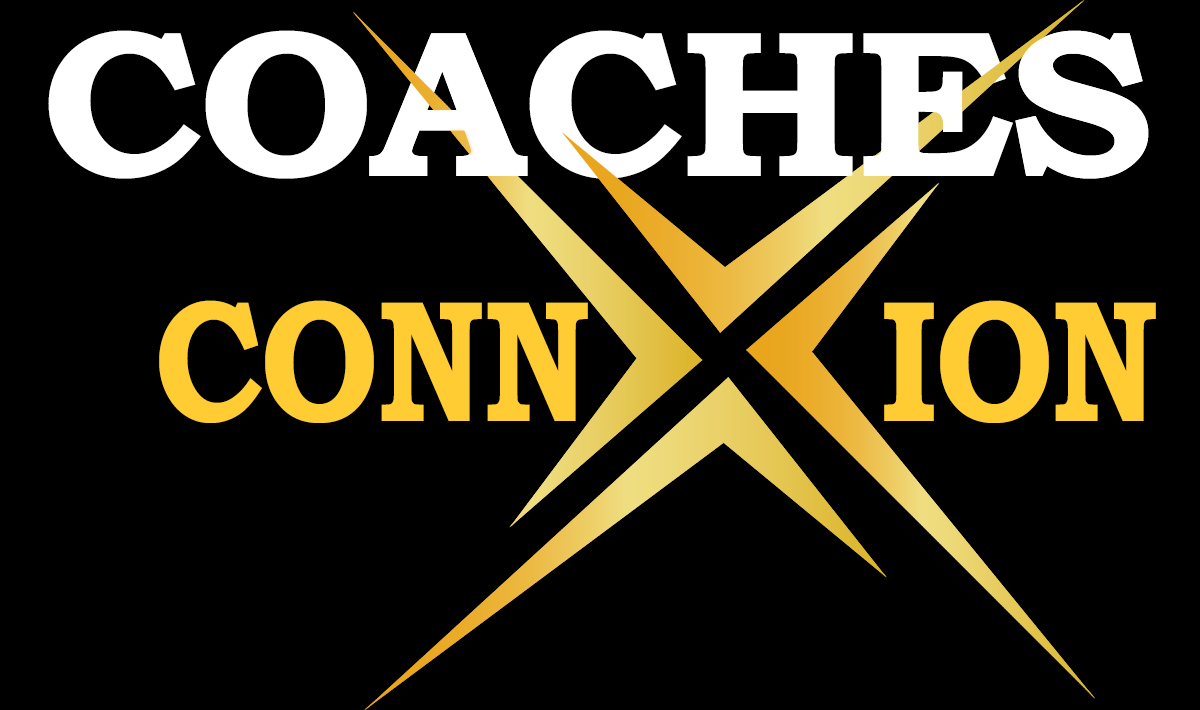
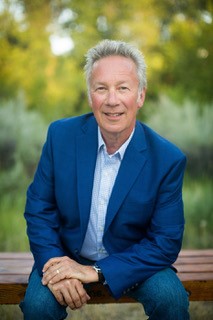
" "
"Facts do not cease to exist because they are ignored." – Aldous Huxley
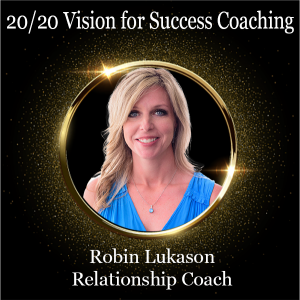
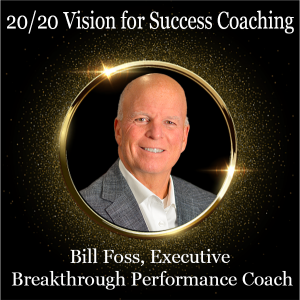
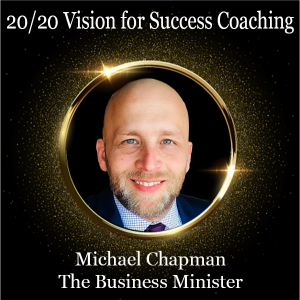
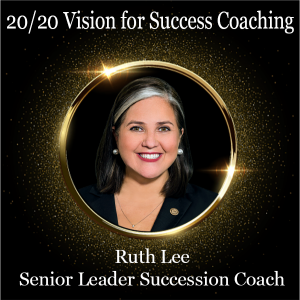
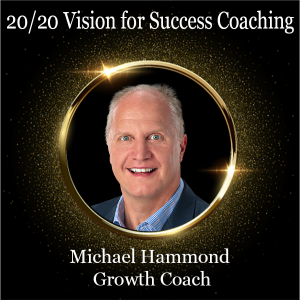
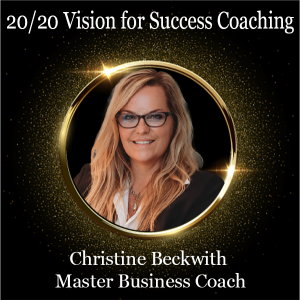
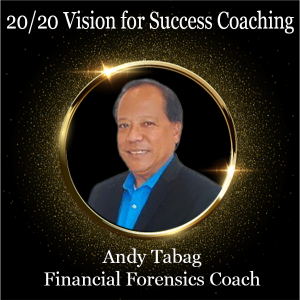
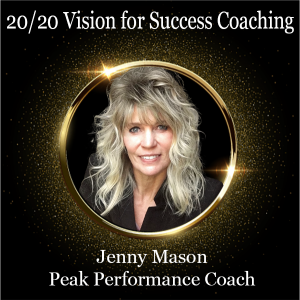
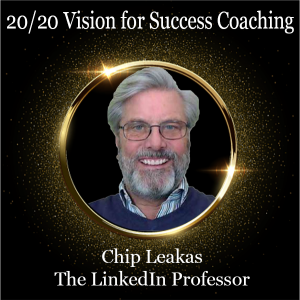
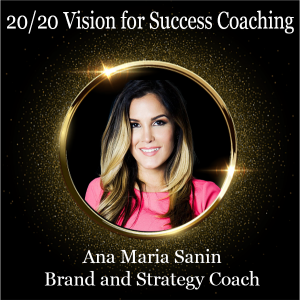
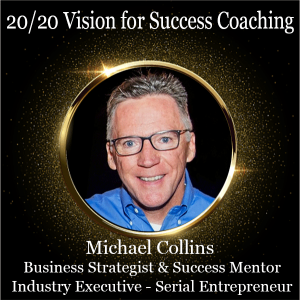
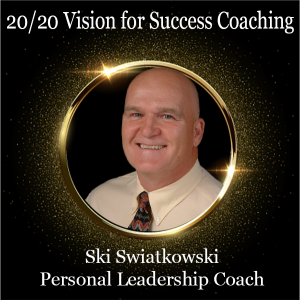
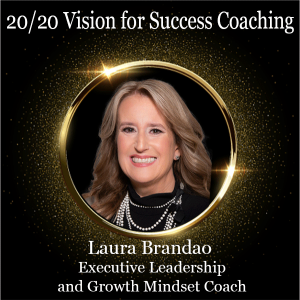
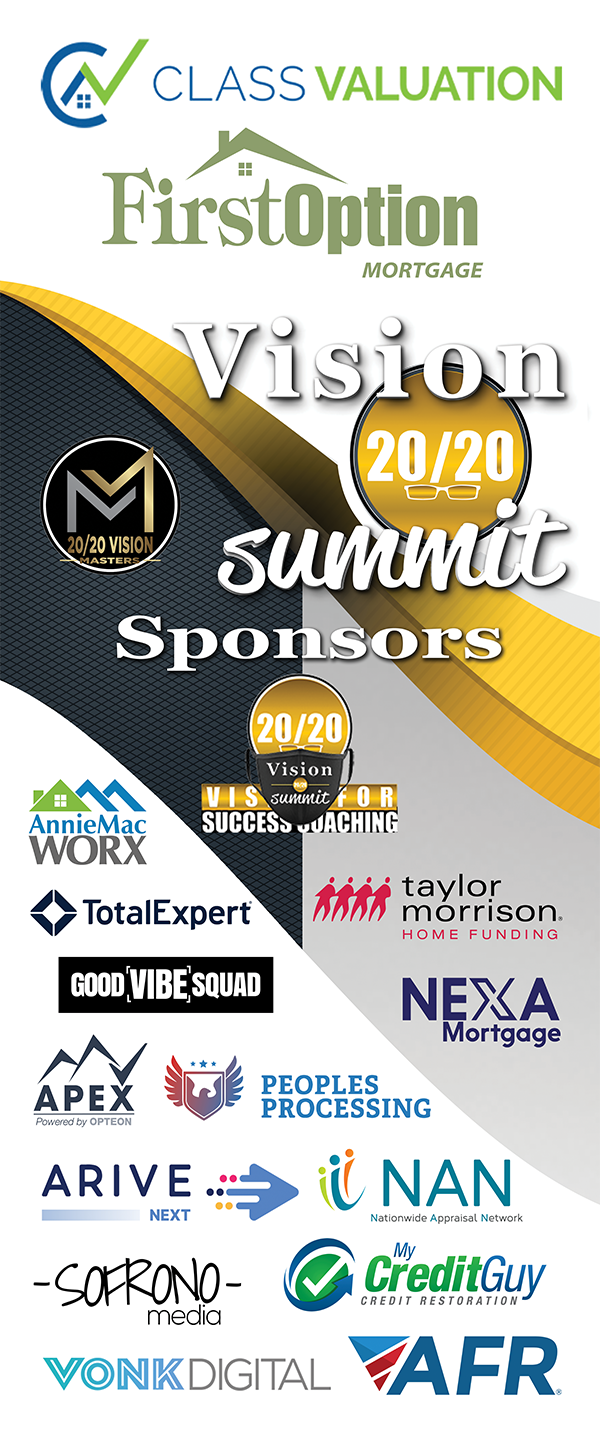
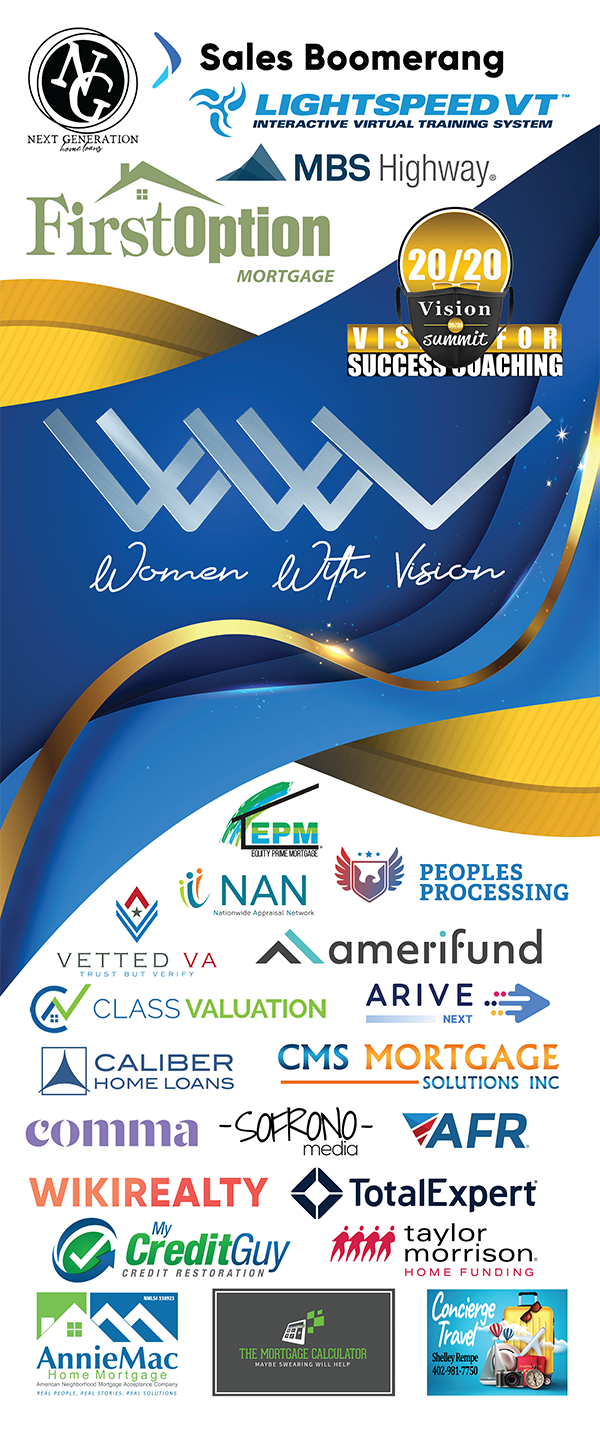
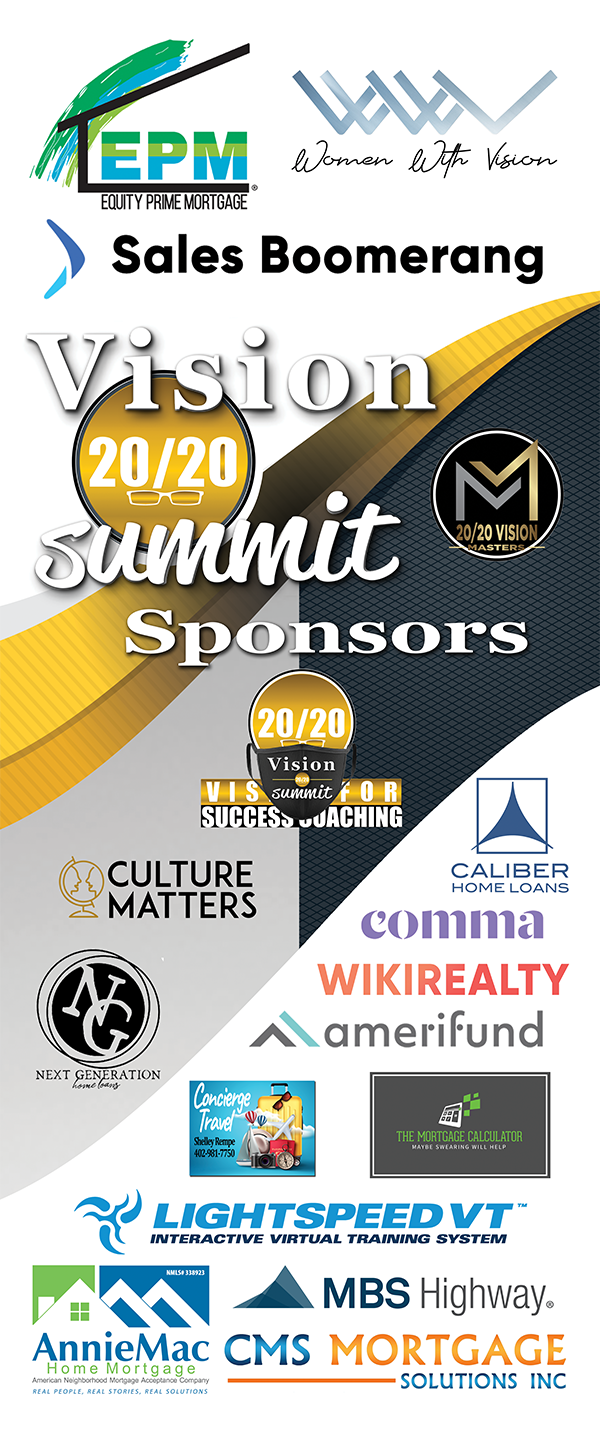
It’s going to be a fast-paced, fun event filled with amazing content delivered by pro speakers and industry leaders! Come celebrate, learn, and laugh with us. You won’t want to miss visiting these great partners and listening to these fantastic speakers!
See you in Tampa. Visit our website at www.2020visionsummit.net for more information. Virtual and live registration links available.
Written by: Laila Khan
Leadership used to be a top-down enterprise. Someone at the top gave commands and directions to people in lower positions, who perhaps gave more commands and directions to other people in even lower positions.
Today, leadership doesn’t mean the same, and thank goodness.
Leadership is for everyone now.
The Old Approach
There was a lot of good in the old vision of leadership. It was eminently respectable, and it was necessary. A good leader could direct and influence people to accomplish goals for the good of the organization. Someone has to look out for the big picture.
Some leaders are better than others.
John C. Maxwell, a leadership coach, said, “A good leader is one who takes a little more than his share of the blame and a little less than his share of the credit.”
Perhaps best of all are the leaders who subscribe to the approach of servant leadership. These leaders don’t ask anyone to do something they are not willing to do themselves. They are not looking for power; their goal is to serve. They share power, and they care for individuals within the group. They want people to thrive, and not just the organization.
A true leader looks out for others first. He or she is a student of life, constantly acquiring knowledge and developing to be a resource for the benefit of others. This leader is invested in character building by starting with their own character.
Jack Welch, the former CEO of General Electric, who is known for developing great leaders once said, “Before you are a leader, success is all about growing yourself. When you become a leader, success is all about growing others.”
The New Era
The new vision of leadership retains the best qualities of the old vision, but with an added element: It is for everyone.
In the new era of leadership, leadership is not limited to a title or role or defined by salary, and no one should be seen as a lesser contributor, relegated to only following others’ commands. Rather, in this approach, everyone is enabled to grow.
Employees and students become leaders in their own spheres, not through a chain of command, but organically. Ideas are valued no matter where they come from and regardless of whether they arrive on a set schedule out of a brainstorming meeting. Better yet, people are empowered to act on them and grow.
Those of us who are not accustomed to this vision must overcome our own insecurities and feel we are worthy of success. We need to stop looking to others for validation and nurture our self-worth coming from within.
This is a particularly big challenge for demographics whose voices and ideas have not traditionally been heard and valued, such as women and minorities.
This is the time.
We must shut out the voices telling us we can’t, and lead.
Leaders Raise Leaders
To someone from the older mindset, this could sound silly and self-indulgent. In fact, it’s far from being silly or self-indulgent. It makes good business sense because leaders who adopt this mindset uplift those around them, and this benefits any organization.
Without a chokehold on good ideas, many ideas proliferate. Without being micromanaged, happy employees and students are motivated to work smarter and harder and are enabled to grow.
People innately have more energy and passion for their own ideas than for those they are directed to embrace. The synergistic effect of this results in growth. If we have a growth mindset, we holistically and organically enable our peers to rise with us. This creates a domino effect in growth and development.
In a stagnant, complacent environment where people have been trained to wait for direction from above and where they have learned their ideas are not valued, nobody grows. They run, exhausted, on the hamster wheel over and over again.
By comparison, when we support each other to lead and grow, we work together on a path to betterment.
If we empowered each other, imagine what we could do with that combined power!
It is worth noting there is still a need for leaders at the head of the company to look out for the company’s goals. The difference is in the attitude.
The great servant leader Max de Pree wrote, “The first responsibility of a leader is to define reality. The last is to say thank you. In between, the leader is a servant.”
A Key to Effective Leadership Looks Like?
One key to effective leadership is celebrating wins.
We can put structures in place to find, notice, and appreciate employees’ contributions. It’s also important to be open to appreciating them even when they arise outside of that kind of structure and even when the wins don’t take the form we might have expected. Appreciation must be a general attitude.
Once again, far from being self-indulgent, this too makes good business sense.
When we celebrate wins, it reminds us of our goals and why we set them in the first place. When work has meaning beyond numbers on a spreadsheet, when we see the difference it makes, it redoubles our energy.
When the celebrating is executed properly, it unifies employees rather than pitting one against the other, because it reminds us we are working together for a shared purpose. It reminds us we work for a winning company, one truly benefitting people. And we can benefit more people when we add to and complement each other’s efforts rather than becoming sidetracked and downtrodden by grudges and negative competition.
When we take a break from the daily routine to celebrate our successes, it re-energizes people to go back and innovate and lead and win some more.
And that’s worth celebrating.
Laila Khan is the assistant vice president of marketing and communications for Guidance Residential where she brings her unique talents to promote success for both the company and the team she works with. Her emphasis on customer journey and marketing strategies directly impacts her company’s visibility and brand awareness, generates more leads, and build partnerships.
Laila believes home is where the heart is, and with her 24+ years of experience, she has found her heart is is in the “niche” space. Her network is broad and strong. She loves working with her company teams to secure home financing and help customers meet their needs, goals, and dreams of home ownership. She focuses on enhancing the customer experience, lead generation and conversions, and optimizing digital presence across platforms.
“I simply love building relationships, learning from others, and closing the gap.”
Laila believes in leading by example and doing all she can to ensure team members are personally and professionally fulfilled. She considers these basic tenants of a servant leader to be the core of her success and strengths, personally and professionally.
“I believe in legacy building, purposeful work, and servant leadership. As an advocate of a balanced work-home life and giving back, I value spending time with my husband and raising our three children.”
Laila’s downtime is dedicated to volunteering, tutoring, and investing in community building. She also enjoys being a Tae Kwon Do mom, a DECA mom, and a Girl Scout troop leader, serving, and paving the path for our future leaders.
Laila is a contributor to several industry magazines. She has been recognized and received numerous awards including Top 20 Sales, Marketing, and PR Trailblazer Progress in Lending, 2020 Women With Vision Award, and the Path to Diversity and Inclusion.
Is a Home Office the New Normal for Today's Executive?
Written by: Ruth Lee, CMB
I love my new commute. I wake up in the morning, I have all this extra time to hang out with my husband, eat a healthy breakfast, and take my dog for a long walk (even through the weirdest Colorado weather). But I find myself with a whole new set of challenges working remotely. One of the most meaningful is the loss of those casual drop-bys in the office. Even as a consultant, I always relied on stopping by to touch base with my colleagues, have a cup of coffee, and get to know them personally. I no longer have those opportunities to build rapport. Over the last year, I have evolved a set of guiding principles to ensure I am still staying in touch with those I now consult with. No hiding behind the screen but staying on top of my passion: mentoring and coaching and providing solid executive counsel to those I am working with. Here are three important tips to keeping your relationships alive during a Zoom-soaked work environment.
Small Talk
Let us face it, Zoom is a constant part of our lives and most likely here to stay. Every day I encourage everyone on my calls to foster small talk, and as an executive, I encourage you to build small talk time into your meetings. I always try to show up a few minutes before each meeting and like to spend the first five minutes allowing at least one or two people to talk about their lives. I ask direct questions.
An impersonal, dry discussion depresses innovation, collaboration, and limits creativity. Those five minutes offer an important opportunity to build further rapport and meaningful emotional connections. It has a very real ancillary benefit of putting each other at ease to transition to more serious topics like productivity, job performance, review of Key Performance Indicators (KPI), and the general business of problem-solving. As I read in a recent Harvard Business Review article, your coworkers don’t necessarily need to know every detail of your life, but it certainly helps if everyone feels like a real person.
Face to Face
As a rule, if I am on camera, I want everyone else to be on camera. It does not matter if you look cute or did your hair; we are not dating. What is important as an executive or manager is to gauge interest through body language to foster group cohesion and understanding of critical concepts, challenges, and goals. A Zoom meeting staring at a bunch of initials is only slightly more impactful than a group email. Having people on camera improves the likelihood the participants will be present and focused on the topic at hand rather than answering emails, talking on their phone, browsing the internet, or taking care of other distracting tasks. While it does not have to be every meeting, make it a regular habit to have everyone on camera.
One on One
In-person interaction allows you to go with the flow. If you see one of your team members struggling, you sit down and talk it through. With online conferencing, the onus is on you to bring more intuition to the discussion, which some of us are more adept at than others. Every week have a clear mission to connect with someone working with you. I personally have chucked all the awkward team bonding exercises in favor of a direct one-on-one Zoom team call. This ensures we continue to build relationships with everyone, including the introverts, who aren’t going to participate in Zoom bingo. We discuss work, of course, but mainly I probe gently and with honest interest for information on how they are doing in their personal life. How are they really handling the remote environment? I have a clear message to my team: I want to know what you are up to and I am here for you. How can I serve you and your success?
As the world opens in the post-rona world, there will be a new normal. That new normal will include video conferencing. Zoom is truly here to stay. The lessons I have learned communicating remotely this past year are appropriate to the closed doors, the heads ducked down in cubicles and the virtual environment. One of the more important lessons want to share today is this: work is why we are together, but the relationships we develop are where we will gain an intangible dividend.
Ruth Lee is a well-known, highly published industry expert on mortgage operations, compliance, servicing, and technology. Having built and sold two companies in the mortgage industry, one a mortgage lender out of Austin and one a mortgage services firm out of Denver, Ruth offers a unique perspective on the marriage of sales, operations, and overall business growth.
Ruth graduated from Future Mortgage Leaders in 2007 and most recently co-authored the MBA’s Servicing Transfer Best Practices. Ms. Lee seeks every opportunity to consult and counsel on the practical implementation and impact of operational, regulatory, and legislative changes.
Ms. Lee holds a B.A. in Economics from Mount Holyoke College. She resides in Lakewood, CO with her husband Mike, her black lab Ned and two cats, Jefferson and Adams. Winter months find her and Mike riding every peak they can find.
.
INFLATION READINGS ON THE RISE
Written by: Megan Anderson
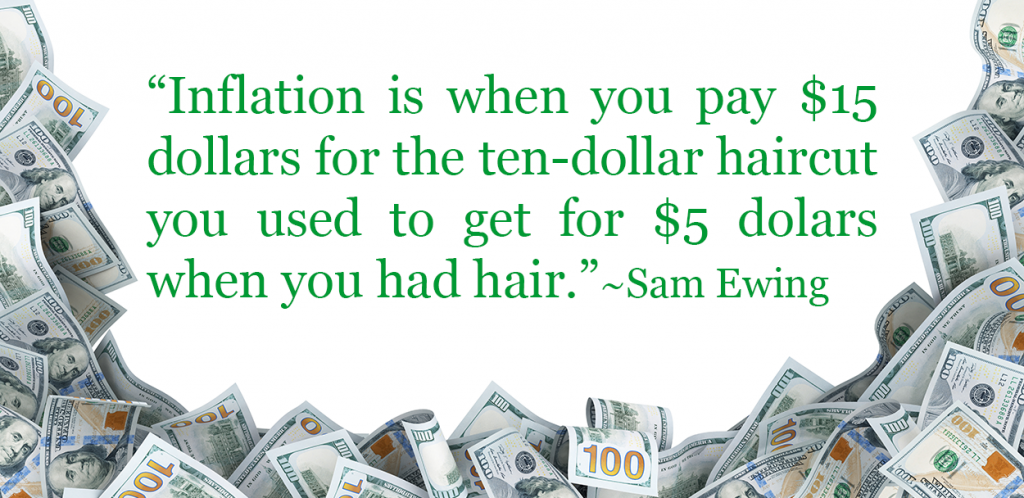 The temperatures aren’t the only thing rising at the moment. Inflation is also heating up, and this is critical because rising inflation can drive home loan rates higher.
The temperatures aren’t the only thing rising at the moment. Inflation is also heating up, and this is critical because rising inflation can drive home loan rates higher.
In this article, we will discuss what inflation is, why it is a driver of interest rates, what inflation reports are critical to monitor, and why inflation is on the rise. Our goal is to inform you and allow you to better help your clients understand what’s happening in the markets, and how this could impact their home purchase or refinance this summer.
What Is Inflation?
In a nutshell, inflation is too many dollars chasing too few products, which causes prices to be bid higher. If there is an item with high demand, such as a home on the market with a lot of potential buyers, the high demand will drive the price of the home higher.
 Deflation is the opposite. Deflation is where there are too many products and not enough buyers, which drives prices lower. For example, if you have 10 homes for sale on one block and only a handful of interested buyers, there are too many products competing for too few dollars. If you have a large inventory and it is not moving, you tend to lower the price to increase demand, which contributes to deflation.
Deflation is the opposite. Deflation is where there are too many products and not enough buyers, which drives prices lower. For example, if you have 10 homes for sale on one block and only a handful of interested buyers, there are too many products competing for too few dollars. If you have a large inventory and it is not moving, you tend to lower the price to increase demand, which contributes to deflation.
 Why Does Inflation Drive Interest Rates?
Why Does Inflation Drive Interest Rates?
The first thing to understand is home loan rates are inversely tied to a type of bond called Mortgage-backed securities, also known as mortgage bonds. When mortgage bonds improve or move higher, home loan rates decline, and when mortgage bonds worsen or move lower, home loan rates can rise.
Inflation is the archenemy of fixed investments like mortgage bonds because it reduces their value. Bonds pay investors a fixed rate of return over time. Inflation erodes the buying power of your future fixed return because the cost of goods and services has increased. Meaning that fixed amount received will purchase less in the future.
For example, let’s say you lend someone $100,000 at 4%. Your fixed rate interest only payment is $4,000 per year. Today that $4,000 can purchase a shopping list of goods and services. But over time, prices rise due to inflation so you can’t purchase all of the items on the shopping list with that same fixed amount received. If inflation were to accelerate, the only protection investors have is to increase interest rates so that they receive a larger fixed payment in order to offset the more rapid erosion of their buying power.
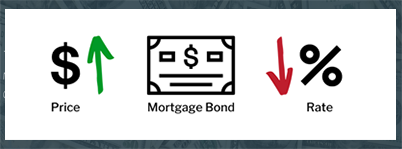 If inflation is rising, Mortgage Bond investors must be compensated with a higher rate of return to combat the erosion of the Bond’s fixed payment, causing home loan rates to rise. As a result, inflation reports are followed closely, as they can have a big impact on Mortgage Bonds and the home loan rates tied to them.
If inflation is rising, Mortgage Bond investors must be compensated with a higher rate of return to combat the erosion of the Bond’s fixed payment, causing home loan rates to rise. As a result, inflation reports are followed closely, as they can have a big impact on Mortgage Bonds and the home loan rates tied to them.
Important Inflation Reports to Monitor
There are two main reports that measure inflation at the consumer level: the Consumer Price Index (CPI) and Personal Consumption Expenditures (PCE), the latter of which is the Fed’s more favored measure of inflation. These reports have several important similarities, as well as some crucial differences.
Both CPI and PCE are each reported on a monthly basis and both reports will give us the data for the previous month (e.g., an inflation report that is released in June will give a reading of inflation for May). The CPI and PCE reports have two main components: Headline Inflation (overall inflation) and Core Inflation, which strips out volatile food and energy prices.
CPI measures prices on a fixed basket of goods and has a significant weighting towards housing and out-of-pocket medical expenses. PCE measures prices on a basket of goods but allows for substitutions. These substitutions will be for similar products. An example of this could be the substitution of honeydew melons for cantaloupe melons if the price of one were to rapidly increase due to supply issues. PCE tries to act like a smart shopper would.
Unlike CPI, PCE does not have a big weighting towards housing, which is obviously important, as well as out-of-pocket medical expenses. Instead, PCE focuses on Medicare and Medicaid expenses, which are kept by the government. As a result, PCE can underestimate the real inflation a consumer feels and it typically runs softer or cooler than CPI due to these factors.
Another important report to monitor is the Producer Price Index (PPI), which measures wholesale inflation. Like CPI and PCE, it has a headline and a core reading. Producer inflation does not always impact consumer inflation as producers may or may not pass on increased costs or decreased profit margins. The PPI may be a leading indicator of future consumer inflation. Although this is an important report, it usually “gets no respect” and rarely has an impact on the financial markets.
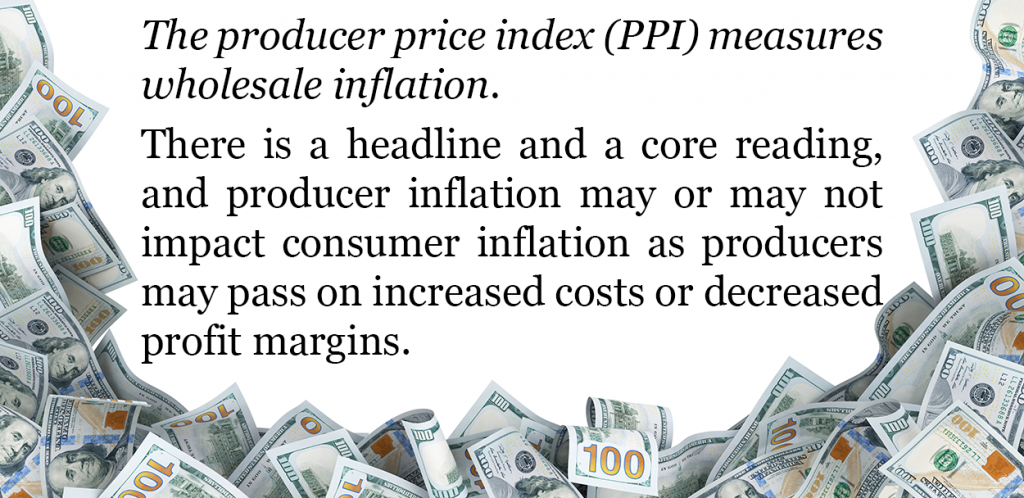 Why Inflation Is On The Rise
Why Inflation Is On The Rise
To understand why inflation has been rising recently, it’s important to understand how it is calculated.
Inflation is calculated on a rolling 12-month basis. This means the total of the past 12 monthly inflation readings will give us the year-over-year rate of inflation. Each month, the most recent report replaces the oldest monthly reading. So, in May for example, the data reported for April 2021 replaced the data from April 2020 in the calculation of annual inflation.
Let’s look more closely at the most recent Consumer Price Index data reported on May 12 for the month of April. Headline inflation rose by 0.8 percent from March to April while the year-over-year reading increased from 2.6 percent to 4.2%, which was a much larger jump than expected and the highest year-over-year increase in 13 years!
Core CPI, which strips out volatile food and energy prices, was up 0.9% in April, which is the highest month-over-month increase in 39 years! When this monthly reading for April 2021 replaced the -0.4% Core CPI reading from April 2020, Core CPI increased from 1.6% to 3.0% year over year.
Part of the reason for the increase in annual inflation is that readings for the more current months are replacing the low inflation readings from 2020 when much of the economy was shut down due to the pandemic.
That’s why inflation is expected to move higher still when May’s CPI readings are reported on June 10. A -0.1% reading of the Core CPI from May 2020 will be replaced with data from May of this year. If inflation rises just 0.3% this May, Core CPI would rise to 3.4% percent on an annual basis.
And continuing further into the summer, if Core CPI were to also rise 0.3 percent in June (again assuming a 0.3 percent rise in May), this would replace the 0.2 percent reading from June 2020, causing the Core CPI to rise to 3.5 percent annually.
Again, rising inflation is significant because inflation erodes a bond’s fixed rate of return. In other words, rising inflation can cause bonds to worsen or lose value. This includes mortgage bonds, to which home loan rates are inversely tied. When mortgage bonds move lower, be it due to rising inflation or other reasons, home loan rates move higher.
This one dynamic remains critical to monitor this summer. And being able to clearly articulate market and economic news like this to your clients is crucial to becoming an advisor they trust to help them make the right home buying or refinance decision for their family.
 Megan Anderson is a well-known professional speaker, teacher, and winner of HousingWire’s 2020 Women of Influence award. She is also the winner of the 2019 40 under 40 award and 2019 Women with Vision award. She has introduced systems and platforms that effectively create content and increase engagement.
Megan Anderson is a well-known professional speaker, teacher, and winner of HousingWire’s 2020 Women of Influence award. She is also the winner of the 2019 40 under 40 award and 2019 Women with Vision award. She has introduced systems and platforms that effectively create content and increase engagement.
She is vice president of Marketing at MBS Highway, the industry’s leading platform for mortgage sales professionals. Megan has helped eliminate the fears and obstacles mortgage and real estate salespeople have in creating video content. Her innovative pieces of training have transformed salespeople into local celebrity advisors.
Megan is a highly sought-after speaker and coach who is passionate about helping others grow their business and gain more confidence in themselves. She is also the host of the podcast Behind the Breakthrough, a podcast telling the untold stories of success.
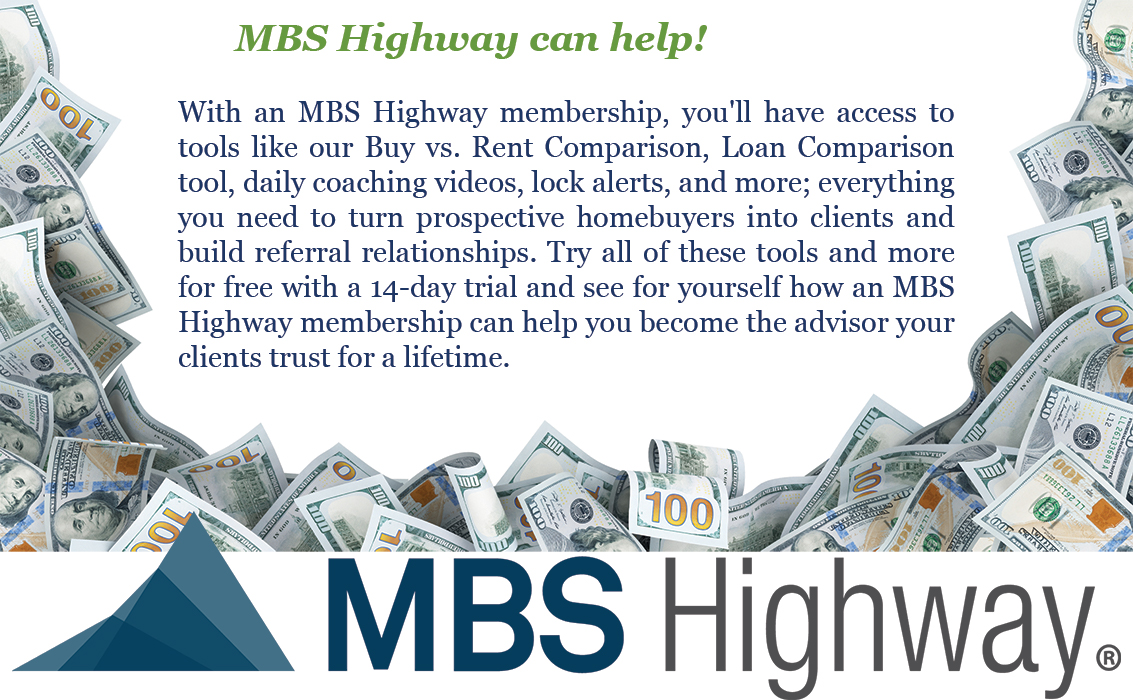
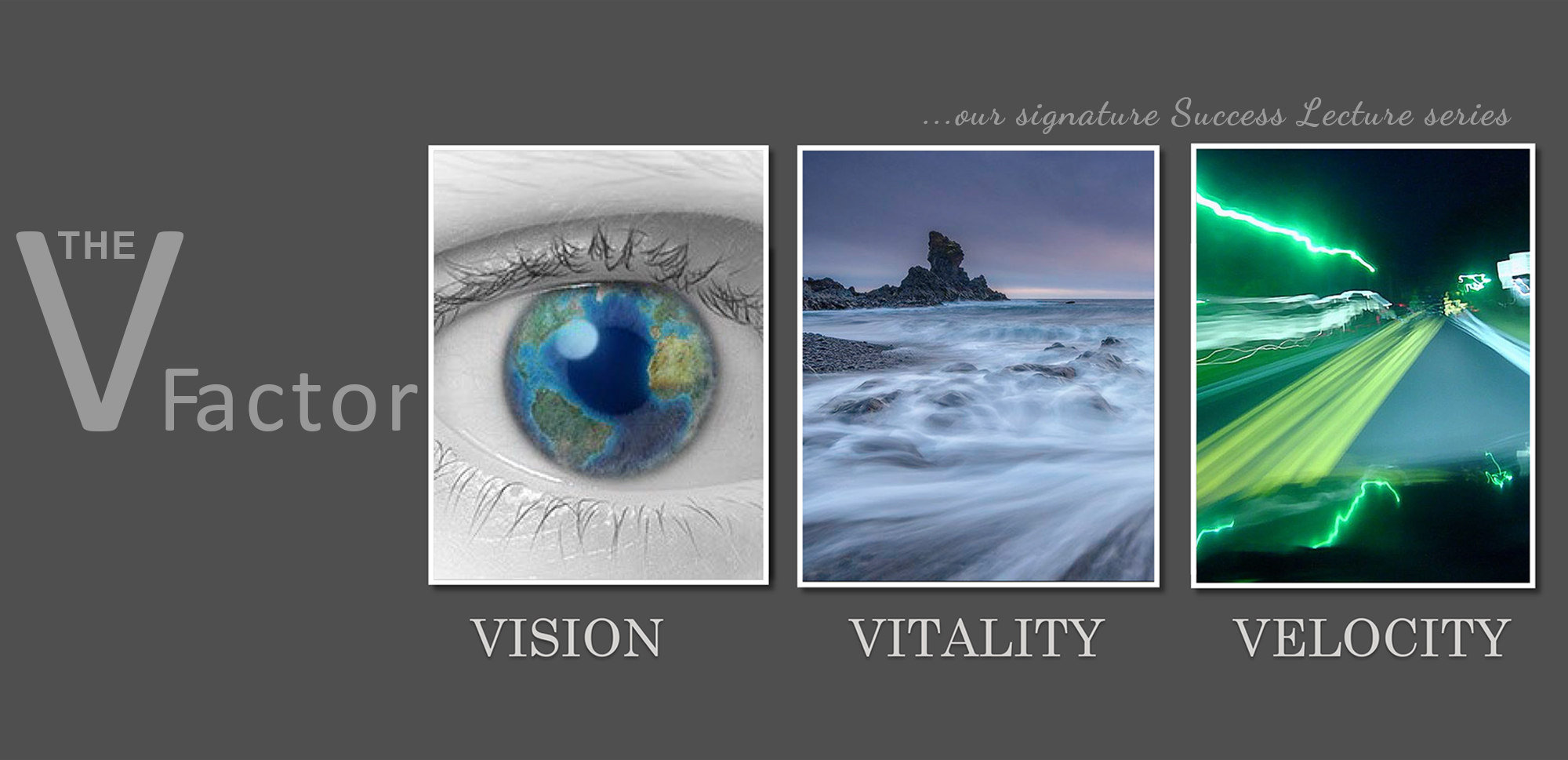

VITALITY SIGNS CHECK
Written by: Jenny Mason
I am sure most of you have had your vital signs checked. I’ve had mine checked frequently lately with my daughter going to nursing school; everything from my pulse, blood pressure, temperature, oxygen saturation, respirations, and rating my pain on a scale from 1-10. I found myself wondering how often we check our vitality signs?
Our vitality signs are an expansion of our body’s vital signs, the compilation of our overall health. Summing up our vitality signs means adding together everything we do mentally, physically, and spiritually. Our daily habits are a contributing factor: movement, nourishment, relationships, rest, work, stress, and thoughts are a few habits that come to mind. We add up our own unique habits to gain a true reading of our vitality signs.
We can eat all the kale we want and exercise all day long, but if we are constantly stressed it can cause negative health effects: mental and physical. It is widely understood in the medical community that untreated, consistently high stress can become a chronic condition resulting in serious health problems including anxiety, insomnia, muscle pain, high blood pressure, and a weak immune system. Research shows stress can even contribute to the development of major illnesses such as heart disease, depression, and obesity, as well as exacerbate existing illnesses.
Our bodies communicate changes before our mind is fully aware. Have you noticed how emotions affect our bodies? For example, when something upsets, worries, or concerns us our heart begins to race, our stomach begins to churn, and for some our hands begin to sweat. Focusing on a negative thought is like walking through a field full of white, fluffy dandelion seeds, our steps fling the delicate seeds into the air where the breeze picks them up and carries them further and further aloft. The negativity spreads through our body as easily and it spreads even faster than we could pick the flowers.
How Can You Do a Vitality Check?
A vitality check is a task you can perform anytime and as often as you feel it’s needed. Begin by formulating a series of questions to ask yourself. Here are a few sample questions to consider and get you started on your own list:
- Are there areas in my life I’d like to change?
- When I think about these areas, do they cause fear?
- What are my biggest fears? Are they legitimate?
- What depletes me?
- What habits do I want to break?
- What has convinced me doing something different would make me happier?
- When do I become super nervous?
- Where in my life do I feel grounded?
- How do I feel most days when you wake up?
- What am I passionate about?
- What do I love learning about?
- What things do I wish I could do more or have more of?
- When am I at my best? Your worst?
- Where am I living right now? In the past, present, or future?
- What advice would I give to my younger self?
- What advice would I give to myself about work? About goals?
- Am I living my life to the fullest right now? Could I be doing more?
After considering the questions during your vitality check, identify what action you will take.
- What steps will you take to make those changes?
- What can you do to overcome your fears?
- Consider how can you add more activities you enjoy back into your life. Are there elements to be removed? How can you remove the people, the job, the negativity, and other issues holding your back?
- What actions can you take now to generate major positive results?
- When something lights you up with joy, add more of it to your life. When something becomes an angry smolder, figure out how to do less of it. Follow what sets your soul on fire, and you will find passion.
How Can We Stop the Dandelion Seeds of Negativity from Spreading?
In Dr. Marilyn Joyce’s article, 5 Keys to Maximum Energy and Vitality, excerpted from her book Instant Energy, she states, “Science has proven that living a purpose-driven, authentic life, with passion and compassion, while embracing each moment fully, is one of the keys to unlimited energy and vitality.”
It is important to take control of emotions when we feel the knots and butterflies begin to form. That’s the time to take a deep breath, breathe in and out slowly, and walk around for 90 seconds. We have to be quick to take thoughts captive before they hold us captive.
- Find a way to replace your old patterns of dealing with fear with new ones. Ask yourself, where did the thoughts come from? And are they true? Replace thoughts of fear, self-doubt, and negativity with positive thoughts. Create anchor thoughts and reflect on what makes you feel good, give yourself positive affirmations: I’ve got this. I can Do This, I Am strong. Remind yourself of all you have been through.
- Break out of the habit of wearing masks to hide how you are feeling. Show yourself compassion as you would your closest friend.
- Stop your wandering mind. Stop and think of what you have to be grateful for.
- Take action and break through your excuses. Identify what you really want. Take it one step at a time. Keep it small and let it build. Remember, the home is built brick by brick.
- A healthy set of vitality signs includes as healthy a physical body as you are able to achieve. If you don’t currently exercise, start small. Find physical exertion you enjoy and engage in it for 15 minutes, increasing as you build stamina.
- Make it a habit to perform nice acts for others. Rhonda D. Jones’s article, Christians and Depression – Scientifically Proven Activities to Elevate Your Mood discussed a study where researchers asked people to do five small acts of kindness every day. The results report the people routinely performing acts of kindness showed a significant boost in happiness. Acts of kindness don’t have to be big; small acts like sending notes or saying encouraging words to someone. Change someone’s life for the better today.
Start your day on a positive note. Research shows your mood in the morning affects your productivity all day.
- Spend time with positive people.
- Work on your relationships. Researchers have found 70 of your personal happiness can be explained by your relationships. It’s not so much how many you have as how strong they are.
- Keep a did it list, focus on what you have accomplished today and celebrate yourself.
- Another biggie is stop living the ladder of success life, that we’ve been taught brings happiness. What has convinced you that would make you happier? Once you’ve tasted significance happiness, success just doesn’t satisfy quite the same.
At the end of our lives, it’s not the success we will wish we would have had more of, it’s about living a life of vitality. We can be so caught up in what’s happening and the busyness of life we lose the connection with the bigger picture of our lives and what we really need to be nourishing and tending to so we achieve our own state of vitality. We are so busy being busy we neglect ourselves in critical ways—mentally, spiritually, and physically. If we don’t take time to relax our bodies will be in a constant state of tension.
Here are a few science-backed habits to get you slow down and pay attention to what’s going on around you to help you relax.
- Take a walk in the woods, along the beach or outdoors
- Think of five things you are grateful for; they can be simple.
- Spend 30 minutes doing a hobby, going for a walk, or doing a relaxing exercise.
- Pray or sit in silence for 15 minutes.
- Start your day with gratitude, before you look at your phone, news, work, or anything spend 30 minutes for yourself; pour into yourself so you can overflow onto others.
Make sure to check your vitality signs from time to time and make sure your habits are nourishing you mentally, physically, and spiritually. Remember to be present, live virtuously, and relentlessly pursue what sets your soul on fire.
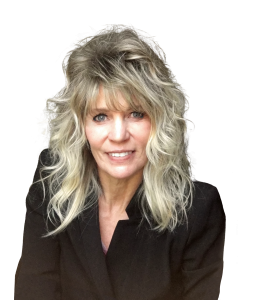 Jenny Mason is a regional business development manager with Movement Mortgage. She is 100 percent a servant leader building relationships, encouraging people, igniting passions, and adding value for all. Jenny is passionate about encouraging, serving, and inspiring people to overcome their limiting beliefs, to reach for the sky, excel more, ascend higher, and live life more abundantly personally, professionally, mentally, physically, and spiritually!
Jenny Mason is a regional business development manager with Movement Mortgage. She is 100 percent a servant leader building relationships, encouraging people, igniting passions, and adding value for all. Jenny is passionate about encouraging, serving, and inspiring people to overcome their limiting beliefs, to reach for the sky, excel more, ascend higher, and live life more abundantly personally, professionally, mentally, physically, and spiritually!
Jenny is one of the many incredible Coaches at 20/20 VSC.
Written by: Grant LaViale
Hello friends and readers. This article is a bit heavy, but, the topic is an important one and is the hard truth. It is also a topic I’m sure all of you will relate to. Currently, as I write this, personal friends of mine and employees I work with are going through massive traumas and painful life experiences. And I’m not even talking about pandemic life or Covid19. I’m talking about deaths of their parents… hospice visits… discovering that they have cancer, diseases, and life-threatening medical diagnoses. It’s almost as if there is something in the water.
When I hear of these situations, it brings back painful memories my mind and body have shoved into an invisible mental vault to protect me. You see, I had just turned 21 when my father passed away at the young age of 52 from prostate cancer. My mother, years later, died while my two brothers and I took turns caring for her with hospice in her home.
She died on my birthday. I guess that’s the circle of life. I can clearly articulate to someone what to expect, how the body will deteriorate, and even how many days left you can expect, yet I would never share this with someone going through hospice at the moment. It’s just too much. The mind and heart needs to take one day at a time during times like these. Draw from strength and from hope, even when it is so difficult to do.
A couple of years later, my brother died suddenly in front of his young son while watching Monday night football. He wasn’t even 50 years old. They said he had an enlarged heart which was treatable if only he had gone to the doctor for his annual physicals. That call was made to my cell phone that day at 5:30 in the morning while I was at the gym.
The bottom line is, all the trauma made me who I am today, which, I hope is a better person. Hell yes, I was scared when the godfather of the family died, and I was only 21. It was a proverbial Now what? situation. I dropped out of college, missing midterms for his funeral, and then went straight into work. Do you know what it was like back then to get a corporate job without a college degree? Yes, I was college-educated, but I didn’t have the degree to prove it. And worse, my father was clear that I had to finish college (as he graduated from Harvard with the honor roll and tennis team captain. Mr. Perfect.) So… I worked my tail off. I suited up and I showed up. I got up earlier than my competition, stayed later, and implemented my father’s work ethic.
I also implemented my mother’s ability consistently to be humble. I suddenly rose quickly. I received job offers that I wasn’t looking for and quickly climbed the corporate ladder despite one of my former regional managers saying that I will never climb the corporate ladder because I don’t even have a degree.
During the time that I was becoming successful, I was sad because both my parents never had the opportunity to see me shine. The fact is, for me, being successful has been a lonely journey. It still is today from time to time. Training myself to remain positive and taking the best traits from my deceased parents has brought me a blessed life and children.
It essentially gave me the competitive edge. I’ve been through so much in my life, nothing can phase me — so it’s onward and upward, people!
If you are currently experiencing trauma then yes, I know it feels like the world is crashing down on you and around you. However, I promise you will gain something in your life from these events. I hope my story can be proof of this for other people, even as I just received a text from one of my employees this Saturday morning that his father passed from being in hospice.
But… we have to remember there is gain after pain and trauma. Even when it’s hard to believe or see during the pain and the crisis, it’s still the truth. Experiences that are painful or uncomfortable or negative lead to growth and lessons. Let’s pay attention to what those lessons are, difficult as it is to see during our times of strife, and hold on to the truth: that there can be beauty out of ashes.
Trauma makes you think crystal clear when the moment is right, makes you grow up fast like I had to at 21 years old, and brings perspective to what’s important.
Written by: Fouad (Fobby) Naghmi, EVP
Originally born and raised in New York, Grant moved from Northern California to Santa Barbara to attend UCSB and never left. Grant is married and the father of three children who credits fatherhood as having taught him much about life and himself. In his free time, Grant enjoys going to the gym in the early morning, going to the movies with his wife and family, and playing golf with clients and friends.
Grant truly enjoys what he does and believes it’s the people and leadership separating us and strengthening us, based on his experience in both the mortgage and banking Industry. Grant stays true to his practice on the importance of having a positive work culture and support structure in place, especially during difficult periods. He is committed to ensuring their clients and referral partners have only the best experience and advice possible.
Grant is a non-producing area manager working with sales managers and loan advisers for the Central Coast and Desert Communities who live by integrity and sincerity.
MORTGAGE X PODCAST
On this episode 2019 Women With Vision Award Winners discuss the current state of affairs of the industry. Laura Brandao, Elizabeth Karwowski, Lisa Lund, Molly Dowdy, Michelle Dugan, Leora Ruzin, and Kelsey Rauchut, all look back at 2019 and share their perspective, advice, and of course vision for 2020.
Christine Beckwith of 20/20 Vision for Success Coaching and Jason Frazier of Mortgage X Creative bring you the Mortgage X Podcast. Guests range from visionaries working hard to evolve our industry to meet the needs of the modern consumer to the industry’s biggest producers, advocates, legends, thought leaders, partners, and lenders.
After you listen to this great podcast, be sure to take a look at the January issue of the Women With Vision Magazine where Kelsey Rauchut was featured as the cover story! WWVMag.com
BETTER.COM GOING PUBLIC VIA A SPAC DEAL
 Startup digital mortgage lender Better HoldCo is going public via a merger with SPAC (Special Purpose Acquisition Company) Aurora Acquisition Corp, in a deal valued at approximately $7.7 billion. Better HoldCo is the primary organization that encompasses Better.com, which is also backed by SoftBank. The deal is expected to close in Q4 of this year, which has many industry experts scratching their heads in what is considered an “insanely overinflated valuation.” Better HoldCo also offers title insurance and homeowners insurance under their platform. Better HoldCo was founded in 2016 by CEO Vishal Garg and originated $25 billion in new mortgages in 2020.
Startup digital mortgage lender Better HoldCo is going public via a merger with SPAC (Special Purpose Acquisition Company) Aurora Acquisition Corp, in a deal valued at approximately $7.7 billion. Better HoldCo is the primary organization that encompasses Better.com, which is also backed by SoftBank. The deal is expected to close in Q4 of this year, which has many industry experts scratching their heads in what is considered an “insanely overinflated valuation.” Better HoldCo also offers title insurance and homeowners insurance under their platform. Better HoldCo was founded in 2016 by CEO Vishal Garg and originated $25 billion in new mortgages in 2020.
GENWORTH FINANCIAL CANCELS IPO Genworth Financial (NYSE: GNW) announced it will be canceling its plans to run an IPO of its subsidiary “Enact Holdings, INC,” citing volatility in the mortgage insurance sector. Enact is the private mortgage insurance sector of Genworth, and the IPO was intended to be the saving grace for the company after Genworth backed out of an acquisition of China Oceanwide.
Genworth Financial (NYSE: GNW) announced it will be canceling its plans to run an IPO of its subsidiary “Enact Holdings, INC,” citing volatility in the mortgage insurance sector. Enact is the private mortgage insurance sector of Genworth, and the IPO was intended to be the saving grace for the company after Genworth backed out of an acquisition of China Oceanwide.
“In light of the recent significant trading volatility in the mortgage insurance sector, Genworth’s Board of Directors determined current market pricing for the planned offering does not accurately reflect Enact’s value,” said Tom McInerney, Genworth president and CEO.
Shares of Genworth dropped by 2.6 percent immediately following news of the canceled IPO.
EVERGREEN HOME LOANS PROMOTES JEANNE HUSSIN TO CHIEF MARKETING OFFICER
![]() Evergreen Home Loans, a direct home lender based primarily in the Western United States, recently promoted industry expert Jeanne Hussin to the role of chief marketing officer. This is a brand-new role for the organization. Hussin has been with the organization for over eight years, and she has been in the marketing space during this time, previously as vice president and director of marketing. “For almost a decade now, Jeanne has been an invaluable asset to our team and a vital part of helping the company grow and succeed,” said Don Burton, president and founder, of Evergreen Home Loans. “Her leadership across the board, from branding to social media efforts and beyond, is game changing in terms of our customer engagement and attracting loan officer talent. I look forward to her continued leadership in shaping the s
Evergreen Home Loans, a direct home lender based primarily in the Western United States, recently promoted industry expert Jeanne Hussin to the role of chief marketing officer. This is a brand-new role for the organization. Hussin has been with the organization for over eight years, and she has been in the marketing space during this time, previously as vice president and director of marketing. “For almost a decade now, Jeanne has been an invaluable asset to our team and a vital part of helping the company grow and succeed,” said Don Burton, president and founder, of Evergreen Home Loans. “Her leadership across the board, from branding to social media efforts and beyond, is game changing in terms of our customer engagement and attracting loan officer talent. I look forward to her continued leadership in shaping the s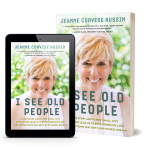 trategic marketing direction of the company.”
trategic marketing direction of the company.”
Hussin is also a well-known author and writer, and she shares her writings on her website, Kind Conversations.
When I’m thinking about branding, Superman really was one of the best branders out there.
Learn how Vonk Digital can help you leverage the New Way to build your brand, authority, and credibility with our website platform and tools. Visit us at www.vonkdigital.com
Read this vlog episode, if you prefer, on the Vonk Digital blog!
Vonk Digital, an industry leader in website and marketing tools for mortgage originators across America, is a proud sponsor and hosting partner of The Vision Magazine.
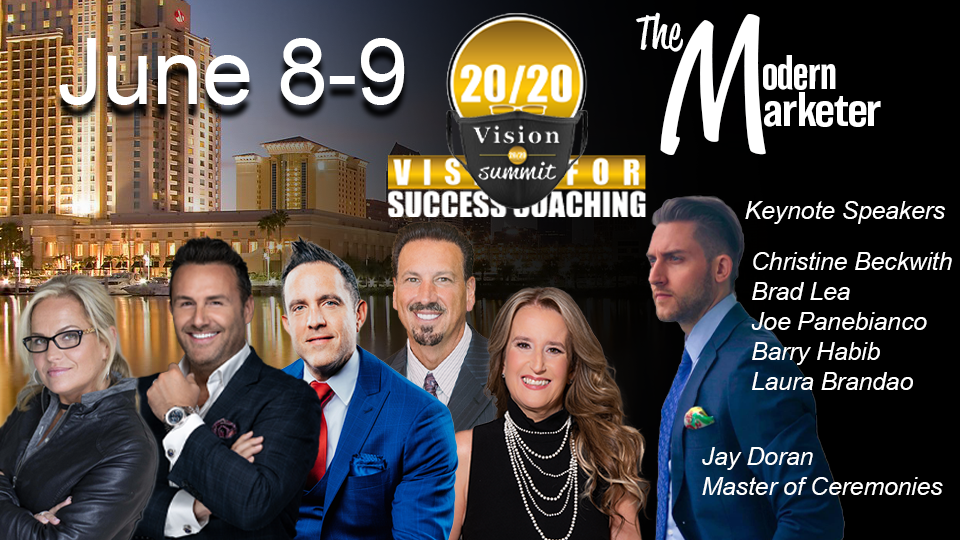
VISION SUMMIT will be a hybrid event. Attend virtually and/or attend LIVE following social distancing and other COVID related practices.
Register here
or visit the website for more information. 2020VisionSummit.net

Due to most of the 20/20 Vision for Success Coaching and the staff of both The Vision and the Women With Vision magazine attending the Vision Summit, our public-facing, by invitation webinars and trainings are cancelled for June. We’ll be back in July and August with an abbreviated schedule during our signature Celebrity Week.
Be on the lookout for exciting new concepts coming in the fall when 20/20 VSC intends to take our popular webinars to the next level!
20/20 VISION FOR SUCCESS COACHING
Have you checked out the 20/20 VSC website lately? Our dynamic, talented, and experienced coaches have their own page! Visit www.visionyoursuccess.net/coaches to read all about this amazing team.
The words 20/20 Vision for Success are not in the name of this company by accident. Coaching is about building a foundation for results and knowing how to step into action based on that foundation. Turning vision into reality requires trust that the bedrock beneath the vision is sound. Coaching with 20/20 Vision begins by building and strengthening your foundation and ensures that, as coaching progresses, you and the 20/20 team behind you remain focused on the vision for success.


A Classic that Endures
By Leora Ruzin, CMB, AMP
Are some people born to achieve anything they want while others struggle? Call them lucky, blessed, or possessors of the Midas touch. What is the real reason for their success? Is it family background, wealth, greater opportunities, elevated morals, an easy childhood?
New York Times best-selling author John C. Maxwell has the answer: The difference between average people and achieving people is their perception of and response to failure.
Most people are never prepared to deal with failure. Maxwell says if you are like him coming out of school, you feared it, misunderstood it, and ran away from it, but Maxwell has learned to make failure his friend, and he can teach you to do the same.
“I want to help you learn how to confidently look the prospect of failure in the eye and move forward anyway,” says Maxwell. “Because in life, the question is not if you will have problems, but how you are going to deal with them. Stop failing backward and start failing forward!”
I recently finished this book right before losing my job. Talk about impeccable timing, right? I have always been super hard on myself when ventures didn’t turn out as I had expected them to, and my continual battles with Imposter Syndrome only magnifies my insecurities when I fail at doing something I so desperately want to be successful at doing. Losing my job was the culmination of months of trying to be someone I wasn’t and thinking fitting in was the key to success. After reading this book, I was able to take the loss in a much more constructive and fruitful way.
Did I fail at something? I sure did! Did I take it hard and cry a bunch? 1000%, I did. I went through the usual grief process, as most people would, but the outcome was much different, now that I understand what it means to fail forward. Instead of seeing myself as a failure, I saw the job loss as a failed experience. Why did I fail at the experience? What could I have done differently? Most importantly, what can I learn from this while still understanding I am not a failure?
This thought process was fundamentally different from previous moments in my life when I did not meet my goal or failed to live up to the expectations I set for myself. Instead of looking at myself as useless, stupid, and a waste (yes, this was how I talked about myself!), I used the tools I learned from this book to break down the WHY and how to move forward in a more positive way.
Great leaders fail, oftentimes more than once. The reason why they are still great leaders is because they see failure as a positive thing. It is a paradigm shift, and John C. Maxwell is a master at giving the reader insight into how to embrace that shift in their thought process.
Failing Forward: Turning Mistakes into Stepping Stones for Success” – John C. Maxwell
Be sure to catch these other great reads from Christine Beckwith. Feel free to go grab them now on Amazon!
Breaking the Cycle is filled with engaging stories wrapped around a theme of power words and is an invaluable treasure trove of practical, hands-on advice. Jam-packed with easy-to-implement suggestions, you’ll read sage advice from two women whose diverse career paths literally write the book on how to create your version of success!
In Wise Eyes: See Your Way to Success, Beckwith tells her life story in a style that is real and raw, but brutally honest. Wise Eyes is a handbook for professionals wanting to walk a direct path to incredible success.
And in her most recent book, Win or Learn: The Naked Truth, Beckwith joins more than a dozen other C-Suite professional women from across the mortgage, real estate, and finance industry for frank discussions about what it takes to succeed as a woman in the top eschelon of business in today’s world.
